The best smart speaker 2025: for Google, Alexa and Siri
Smart speakers can do so much more than just play music
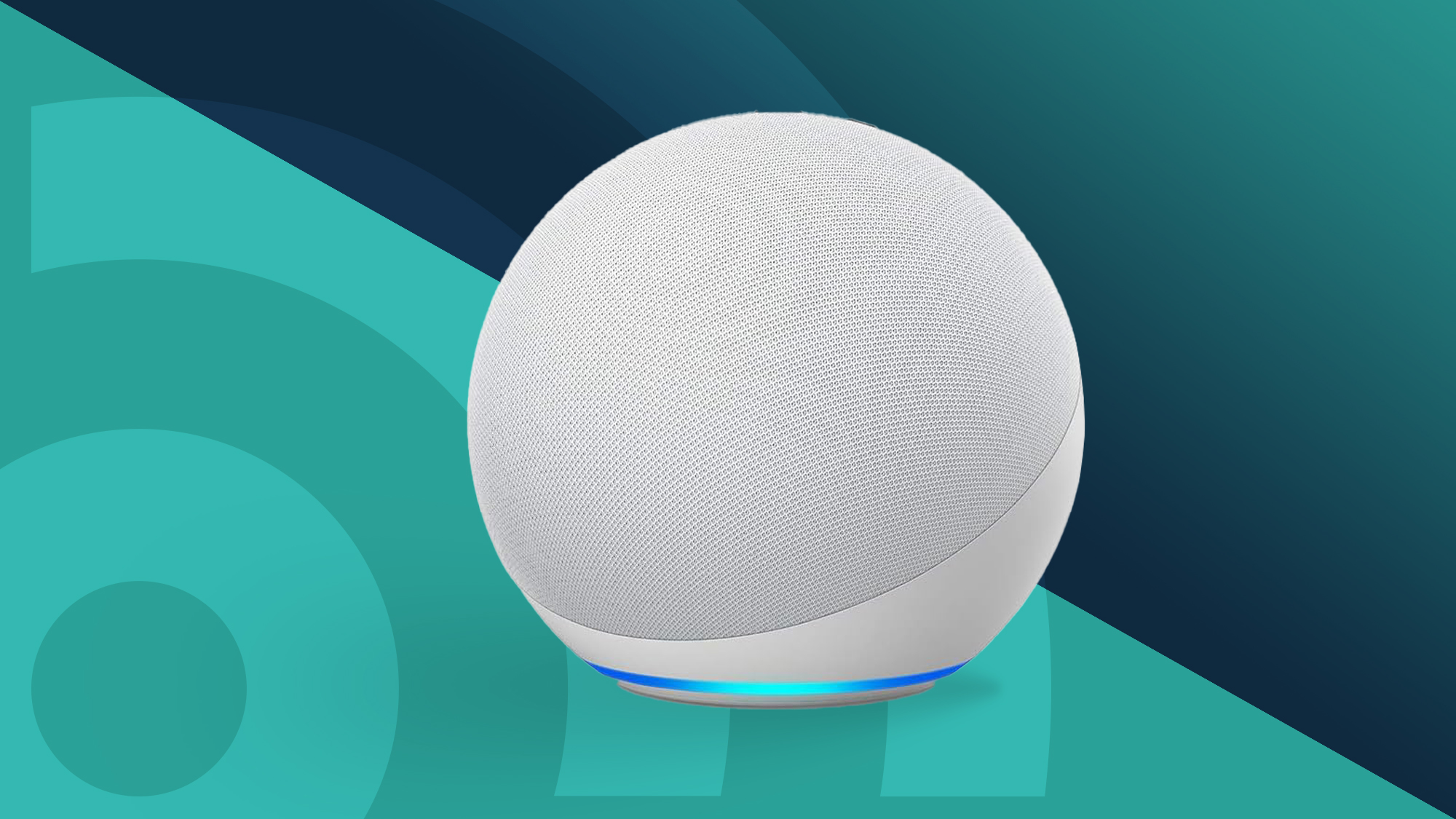
The best smart speakers make controlling your smart home devices a piece of cake, with simple voice commands putting you in charge. These speakers are for far more than music, with many including smart voice assistants that can help you keep organized.
Included below are a variety of smart speakers across different platforms, from Apple HomeKit to Google Assistant and Amazon Alexa, all of which are Matter-compatible, meaning your home will be much easier to set up; still, we'd recommend checking out compatibility with your devices before buying. It's worth noting that Matter isn't an audio standard, but instead a communication standard for smart home devices, so it doesn't affect speakers' abilities to play music or deliver features like multi-room streaming audio.
We've tried and tested all of the smart speakers below to see how responsive they are, the quality of the sound, the value for money, and how easy they are to incorporate into your home. Whether you want to control whatever smart home devices you have set up or just have more simple needs, there's something in here for you. Just say the word and turn your favorite smart lights on. These are all voice-controlled speakers, but some of the best smart displays offer a visual alternative you might prefer if you want a live feed from your home security cameras, or one of the best video doorbells.
If you're considering an Amazon Echo smart speaker, it's worth considering whether you'll want to use it with Alexa+. The new AI-enhanced assistant will be available to owners of the latest Amazon Echo Show devices first, but will be rolling out to the company's smart speakers before long, with the exception of older models like the first-generation Echo Dot and Echo Spot. For more details, see our guide to which Echo devices will work with Alexa+.
Best smart speakers: the quick list
Below is our quick guide to the best smart speakers available today. Use it to narrow down your options, then either hop down to the more in-depth entry, or head straight to a retailer to buy.
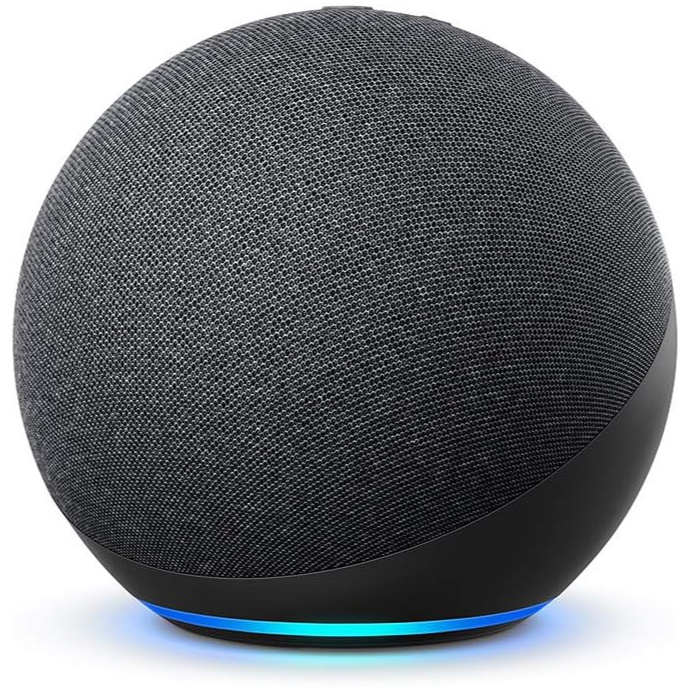
Best smart speaker for Alexa
The latest version of the Echo has greatly improved sound quality, responds to voice commands faster, and works as a Zigbee hub. It's not the loudest smart speaker we've tested, but it's a great all-rounder and during testing we were impressed by the upgrades from the previous model (though it could have been a bit louder). It's excellent value as well, which makes it even easier to recommend.
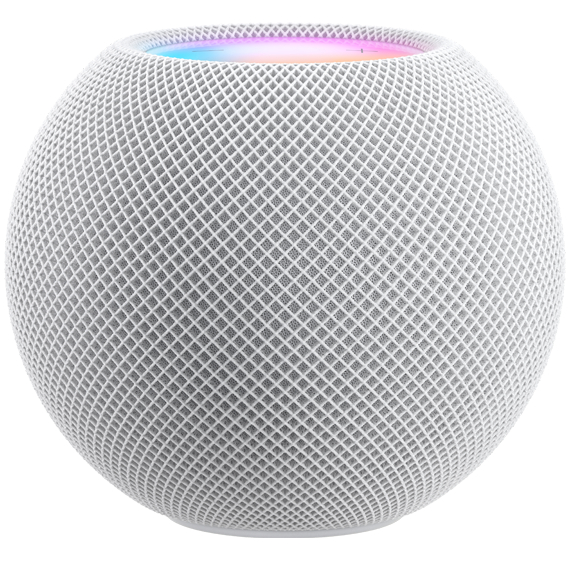
Best smart speaker for Siri
A small speaker that packs a real punch, this is an excellent choice if you're invested in Apple's ecosystem. It's not as versatile as others we've tested, but the sound quality is excellent for the price. We also appreciate how easy it is to set up - just hold your iPhone or iPad near the speaker and they'll pair automatically. If you have an Apple Music subscription, it's the smartest choice.
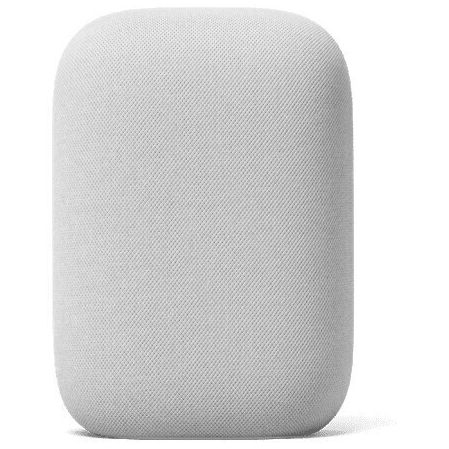
Best smart speaker for Google Home
With excellent voice recognition and fast responses to commends, this little speaker is a great option for the kitchen or bedroom where you don't need serious space-filling sound. It's one of the best smart speakers we've tested when it comes to voice recognition and looks unobtrusive in your home, though it can sound a bit harsh at high volumes and isn't the best option for audiophiles.
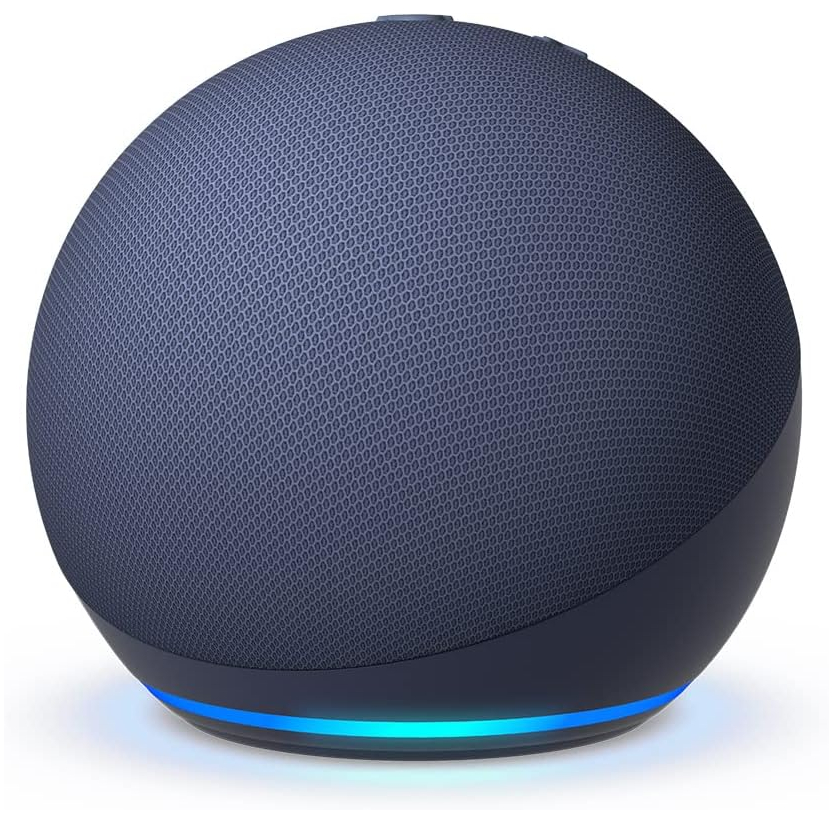
Best budget smart speaker
The perfect entry-level smart home speaker, the Echo Dot (2020) is a cheap and easy way to add Alexa to any room. We prefer something beefier for music listening, but it's hard to argue with the price, and although it doesn't function as a Zigbee hub, it's compatible with Matter. so you can be confident it will work with new smart home devices you buy in the future.
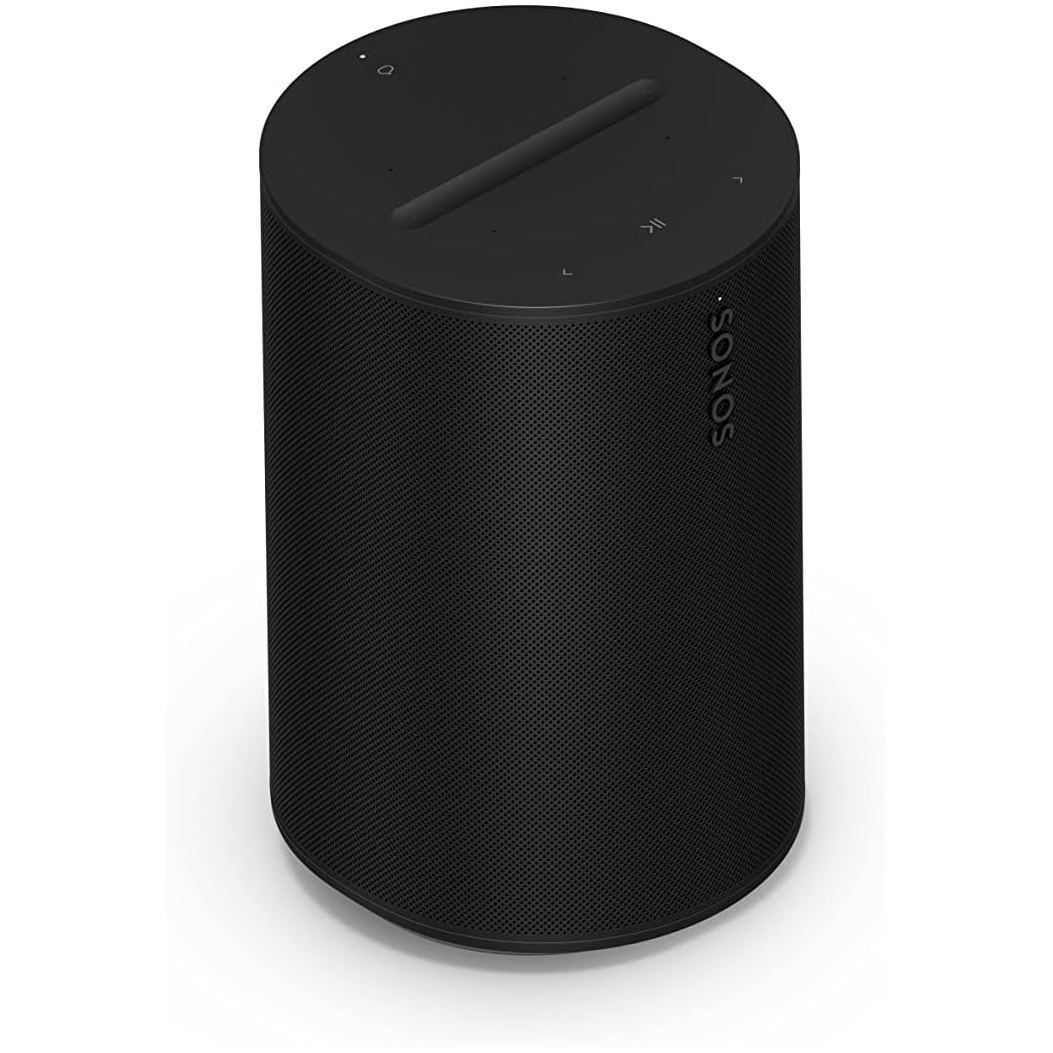
Best premium smart speaker
If your wallet can handle it, the Sonos Era 100 is small, versatile. and sounds great. Audio is detailed and clear, with great bass, and it can be used wired or wirelessly. It's one of the most expensive smart speakers we've tested, but if you value sound quality, it's the one to pick provided the absence of Google Assistant isn't a dealbreaker (it only supports Alexa and Sonos's own voice system).
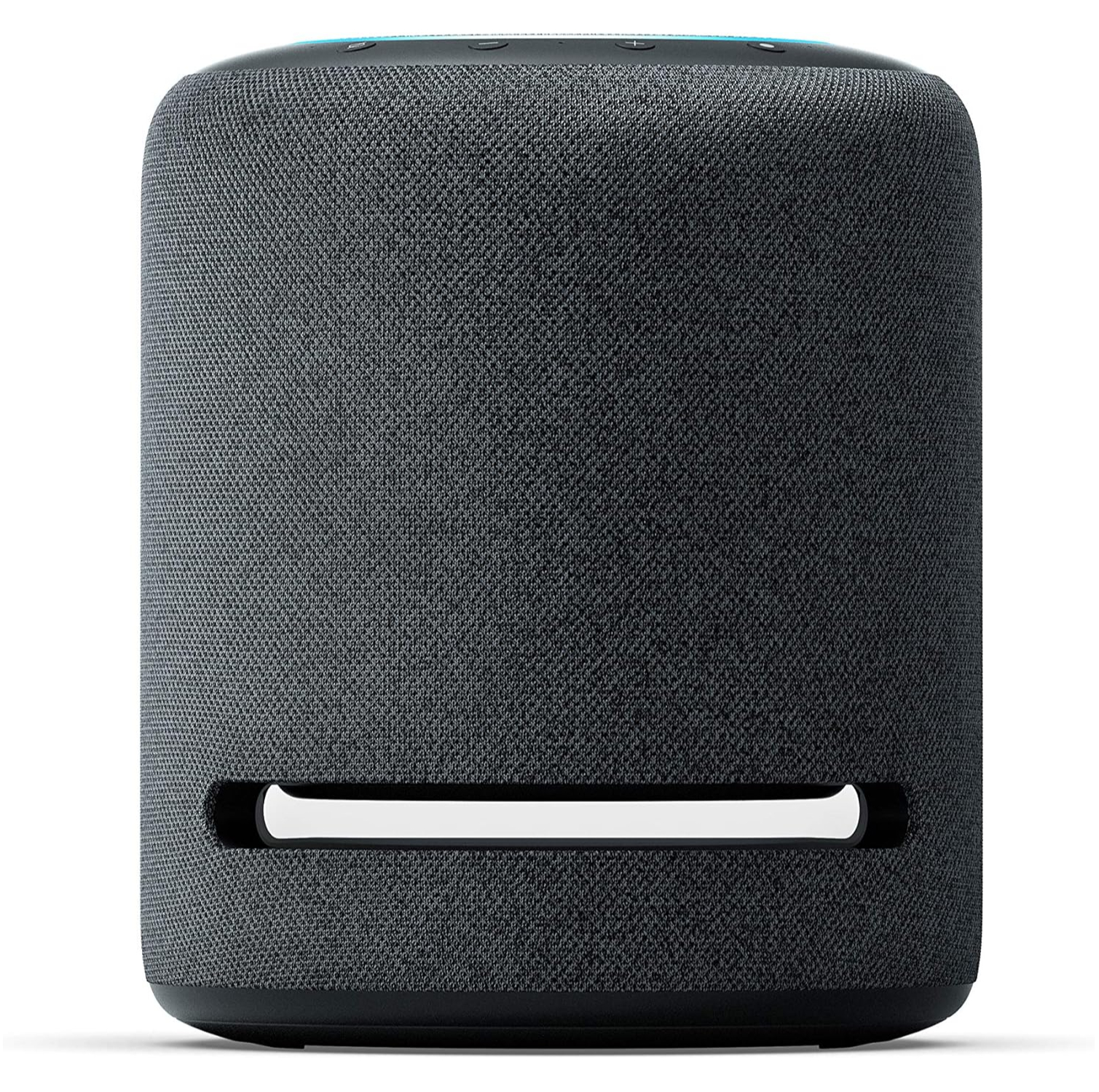
Best for home cinema
This is the best-sounding Echo speaker we've tested, and you can link a pair to create an impressive home cinema sound system. It's a much more affordable option than premium smart speakers from the likes of Sonos, and doubles as a Zigbee smart home hub as well, though bear in mind that you'll need Amazon Music HD to get the most from it.
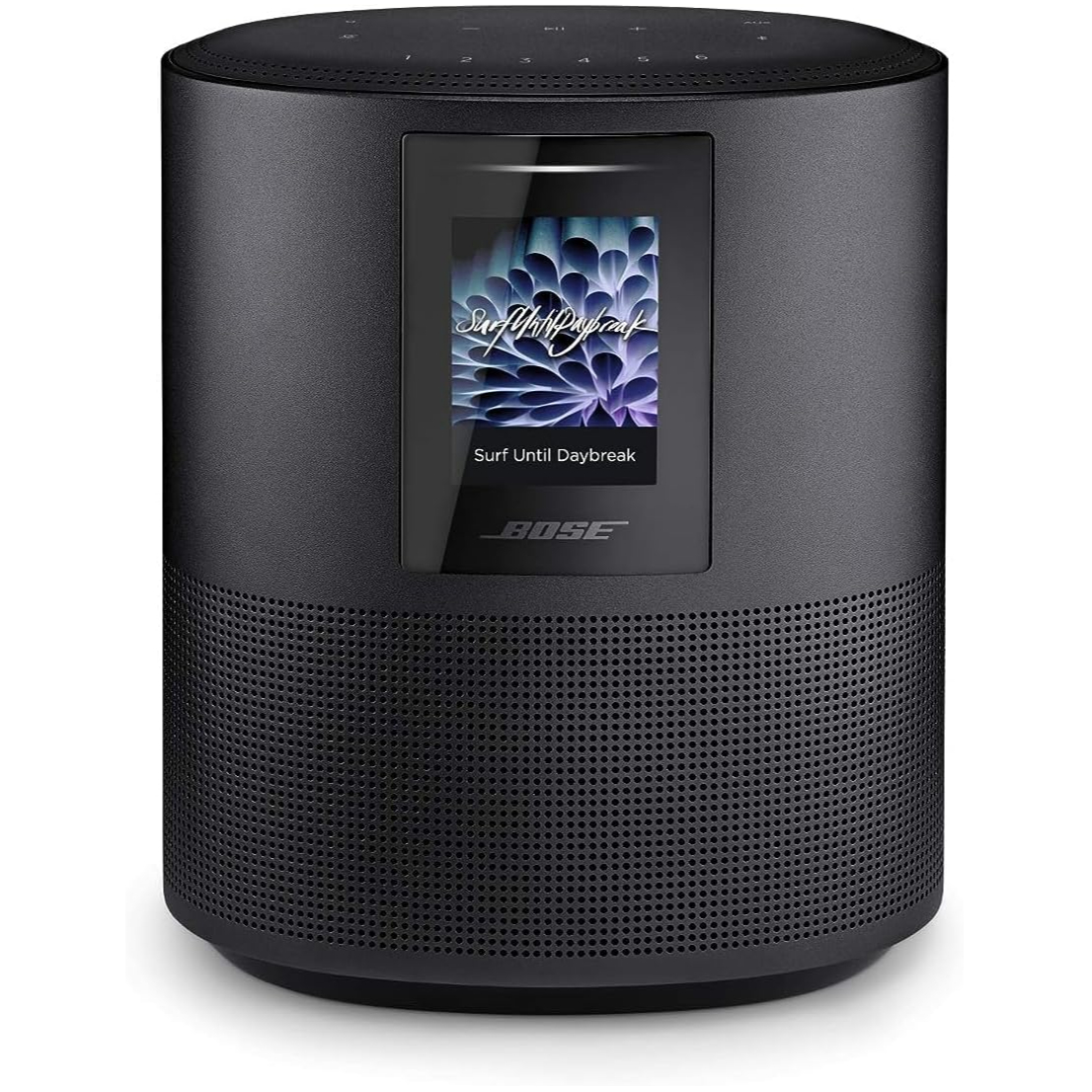
Best for music
This is easily the best sounding smart speaker we've tested, and is our top choice for audiophile-quality sound. We were impressed by how well voice commands work well too, even when the volume is turned up high. One of the more expensive smart speakers around, but you get a lot for your money, including compatibility with both Amazon Alexa and Google Assistant.
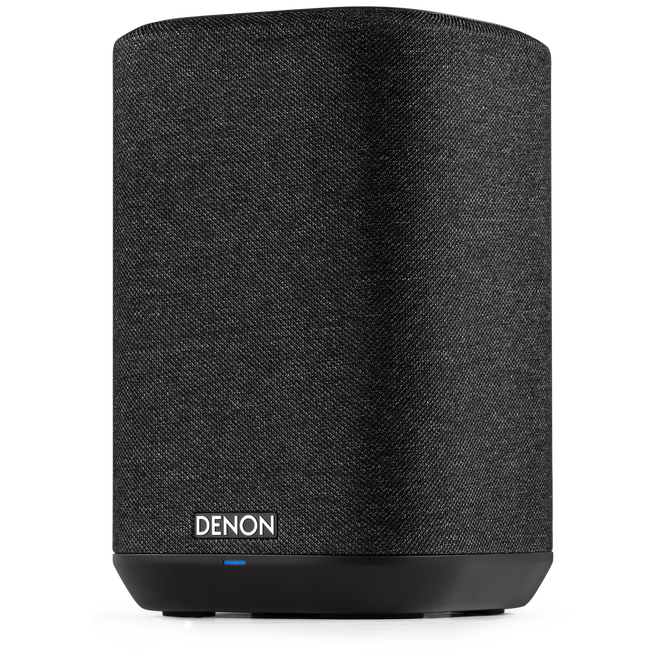
Best for powerful bass
If you want rich bass but don't have space for a big smart speaker, the Home 150 is the one for you and punches well above its weight. Listening to music from just about any streaming service is a piece of cake via the HEOS app, and we appreciated the ability to control the speaker via Google Assistant and Amazon Alexa. It might not look very interesting, but it's got it where it counts.
Meet the experts

An award-winning journalist, Josephine oversees TechRadar's coverage of smart home tech and is a huge advocate for internet safety, making her the perfect person to recommend smart speakers that you can rely on to put you in control while maintaining your privacy.

Becky is an expert in all things audio and hi-fi, and has put her knowledge and experience to good use testing the sound quality of these smart speakers. She spent three years testing products for our sister publication What Hi-Fi? so you can trust her experienced ear.
The best smart speakers
Why you can trust TechRadar
The best smart speaker for Alexa
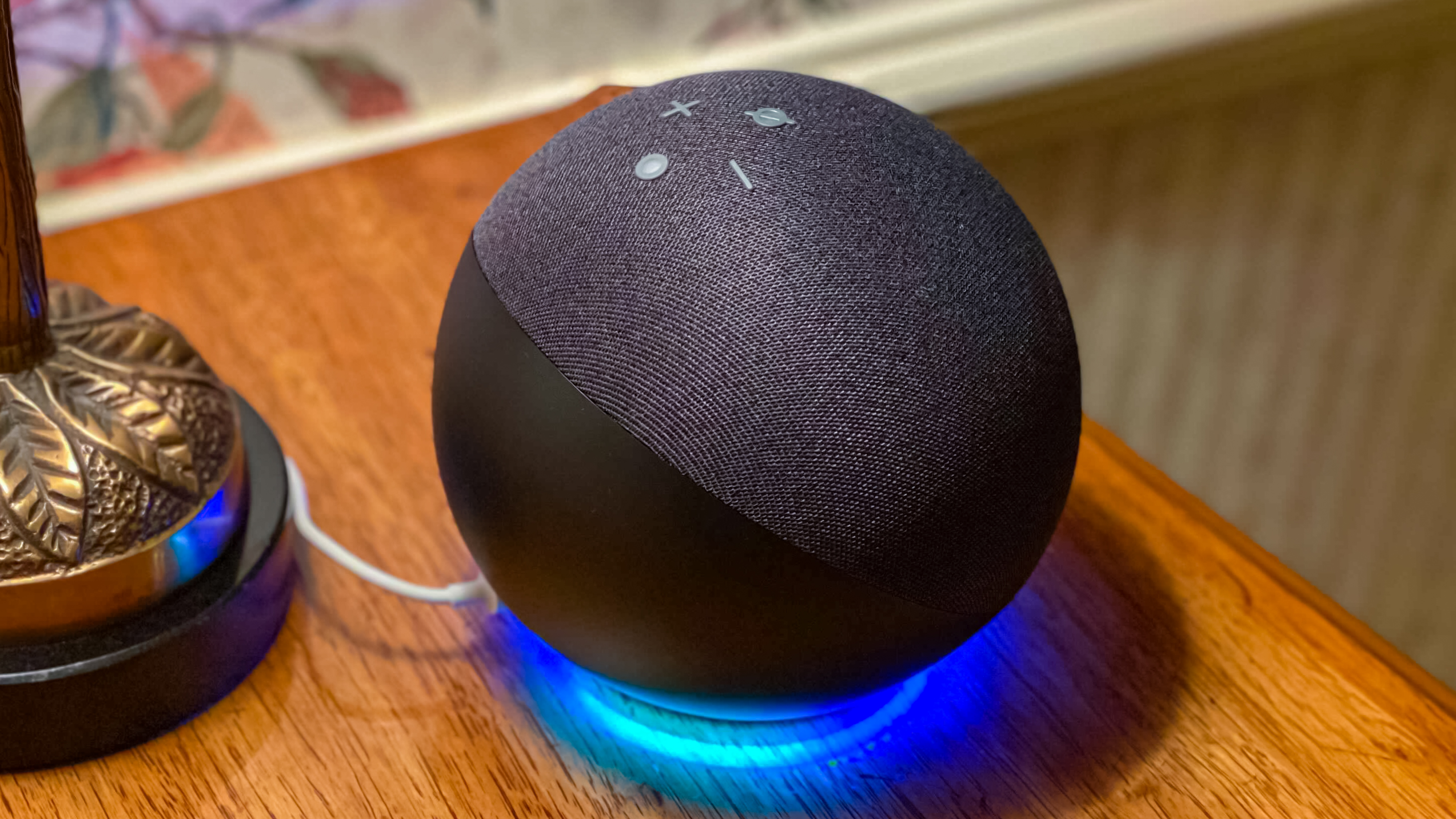

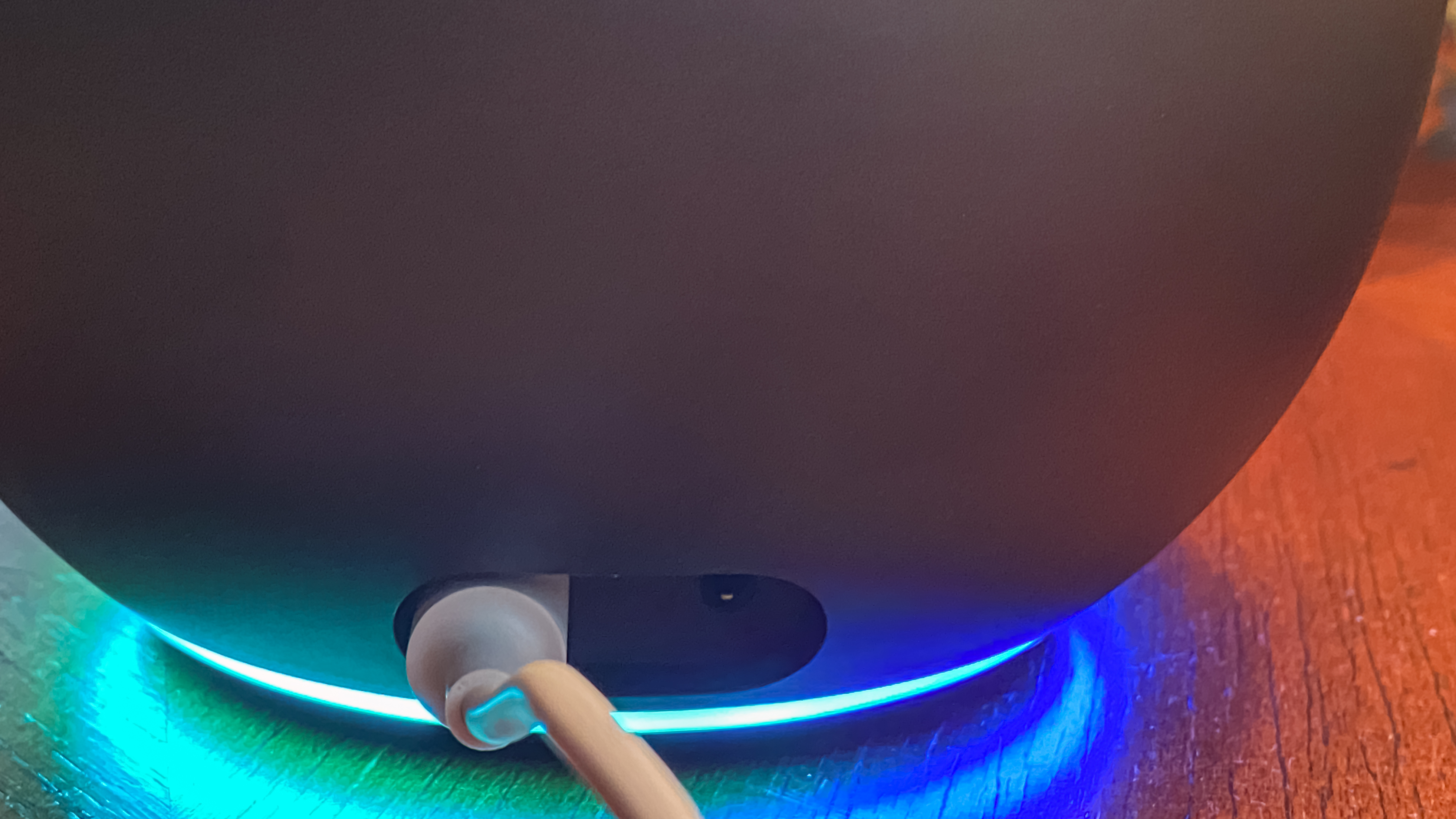
Specifications
Reasons to buy
Reasons to avoid
✅ You're on a budget: This is a cheap smart speaker, but extremely capable.
✅ You want to upgrade your first-gen Echo: This is a significant step up from its predecessor.
❌ You want great sound quality: Audio is OK, but it doesn't compare with the likes of Sonos and Bose.
❌ You don't want to use Amazon's streaming service: Amazon Music is the easiest way to enjoy tunes with your Echo speaker.
The latest, spherical Amazon Echo is a complete revamp of the company’s flagship smart speaker. The new shape is only part of it: there's seriously improved sound quality, a built-in Zigbee smart home hub and a new AZ1 neural edge processor that reduces the time it takes for Alexa to respond to commands. So this is a big step forward for Amazon's smart speaker.
It isn't perfect. When we tested the Echo we felt it could have been a bit louder, especially compared to larger rivals such as the Apple HomePod and Google Home Max; Amazon does have a much louder Echo, the Echo Studio, which you'll find elsewhere in this guide. Amazon tends to do things its own way, so you can't use Google Cast to send audio from your phone like you can with a Google Nest Audio device and you can't add your Echo to an Apple HomeKit network – although many HomeKit devices are also Alexa-compatible and this Echo now works as a Matter hub.
Read our full Amazon Echo (2020) review
The best smart speaker for Siri
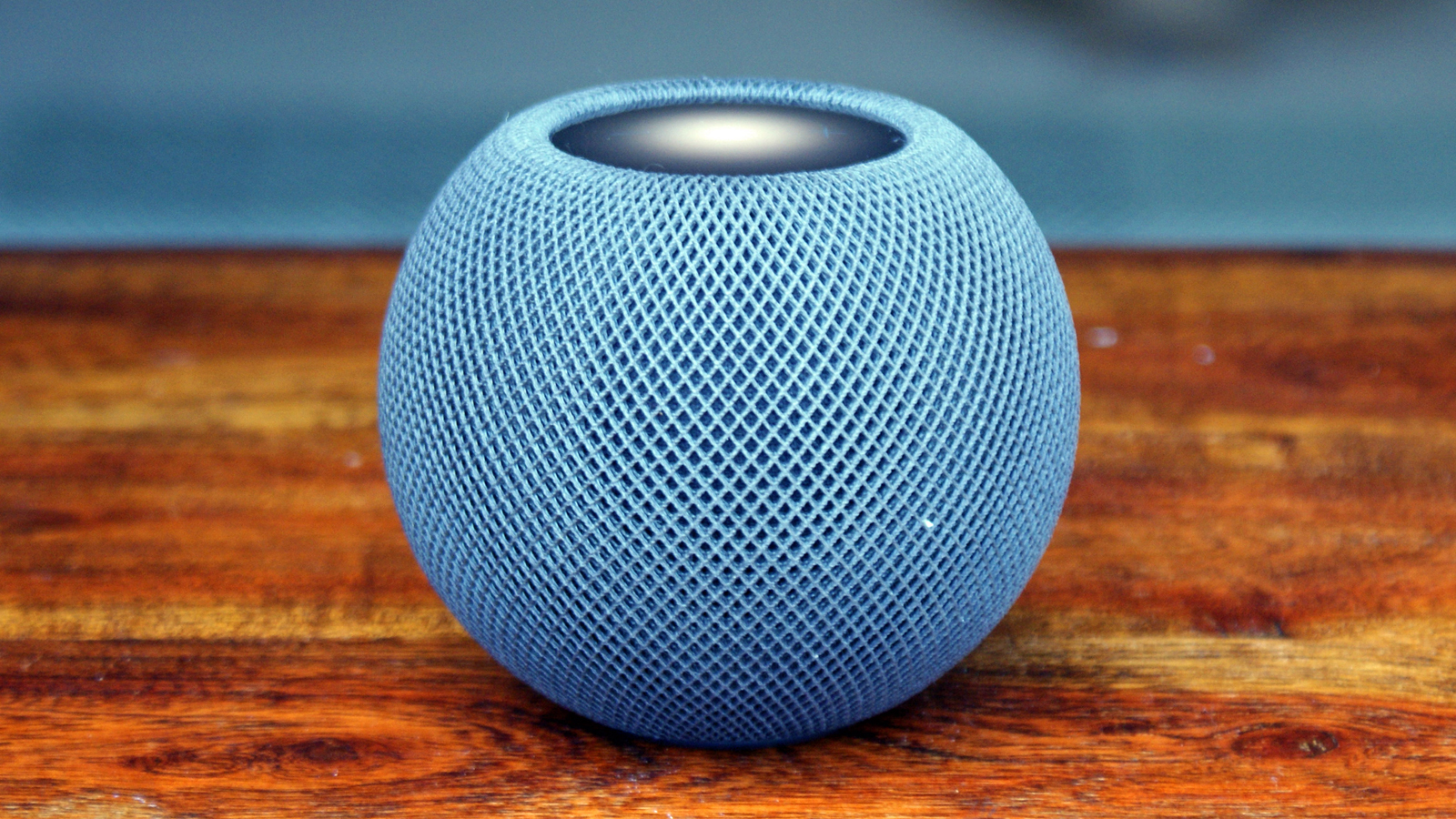
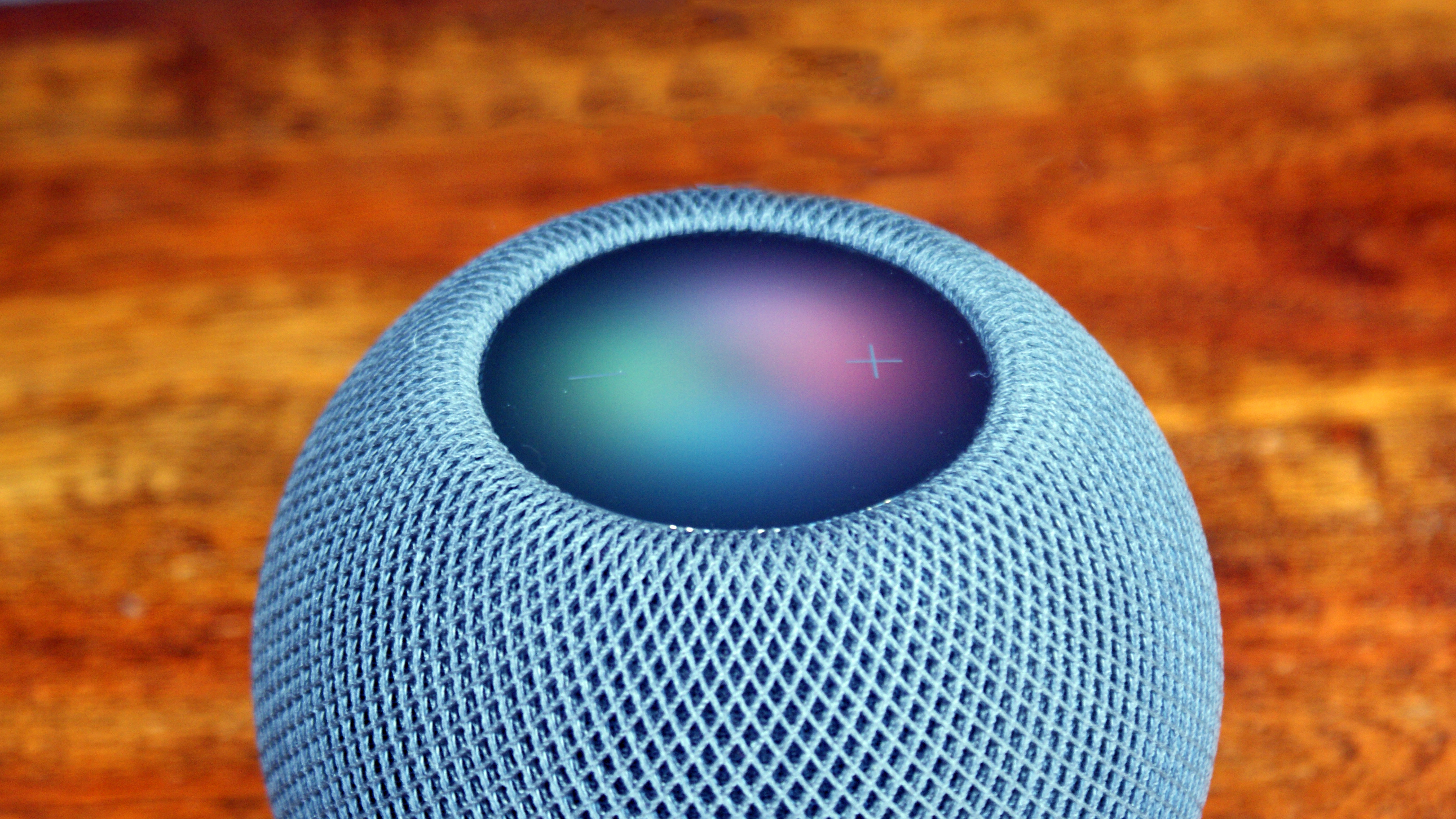
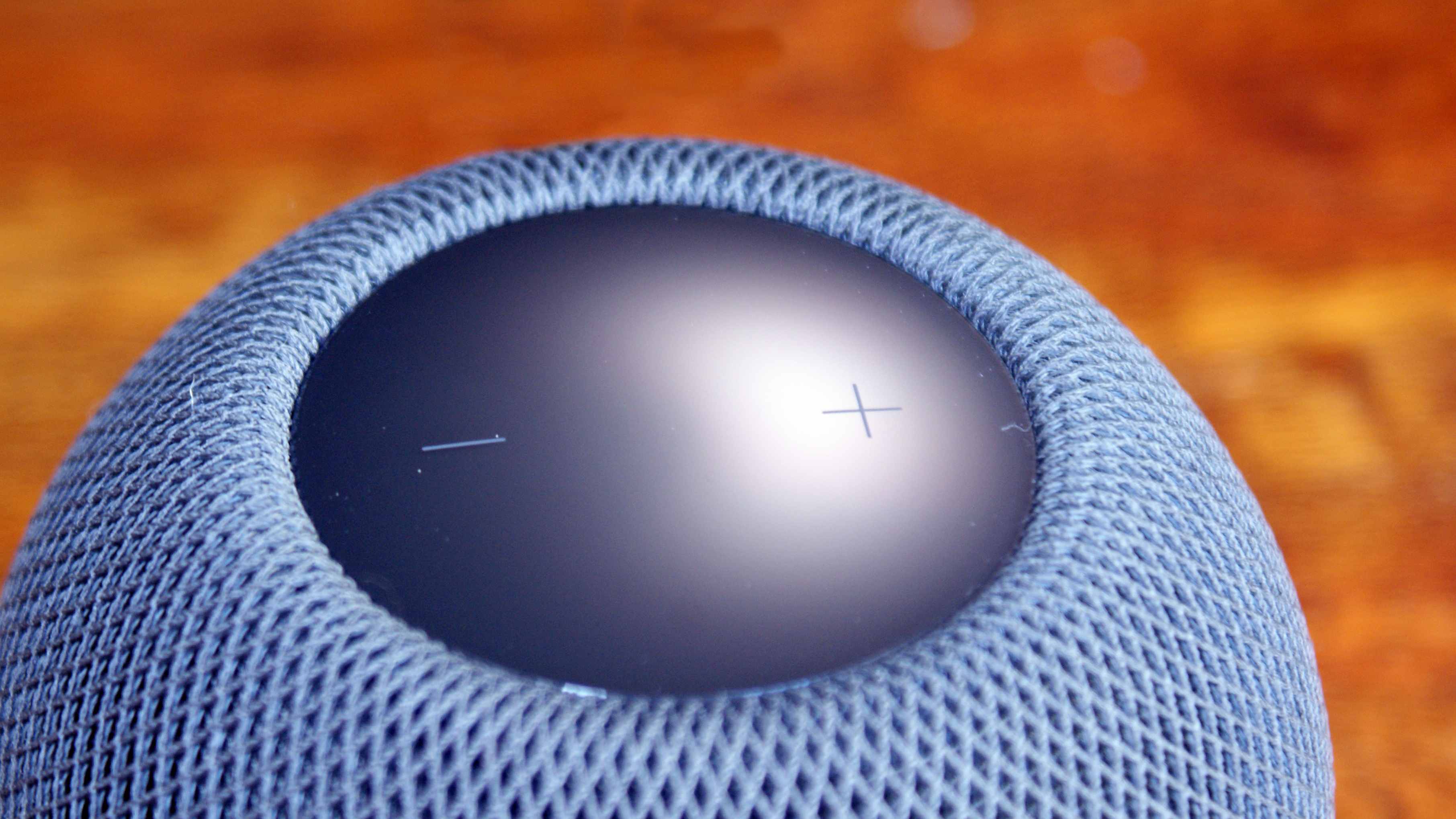
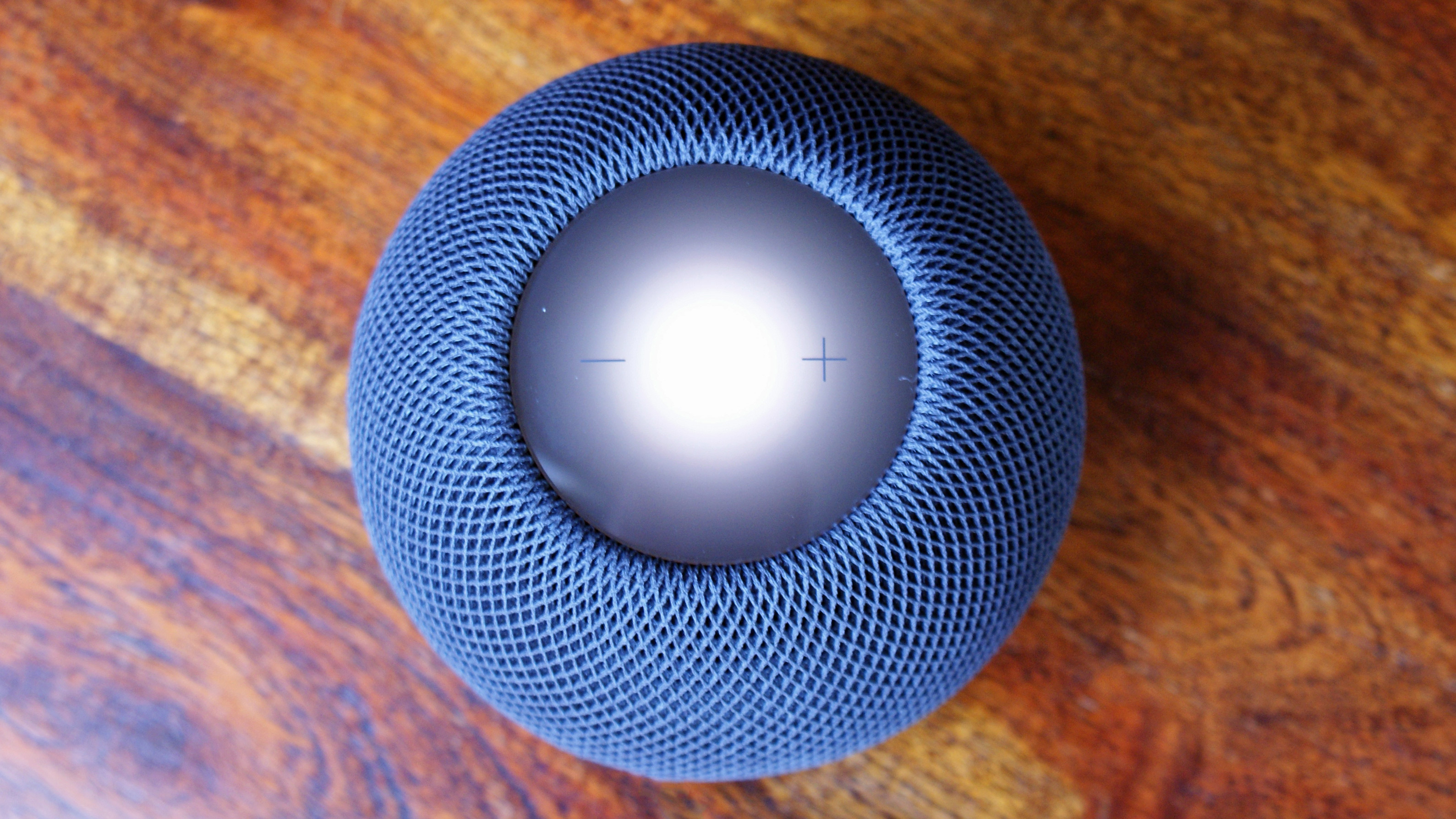
Specifications
Reasons to buy
Reasons to avoid
✅ Your family uses iPhones: The HomePod mini can handle multiple users, and pairing is a piece of cake.
✅ You have an Apple Music subscription: You'll need Apple Music to control tracks with your voice.
❌ You're an Android user: This is a speaker for people embedded in the Apple ecosystem.
❌ You live with light sleepers: The HomePod mini needs to work on its indoor voice.
Since Apple discontinued its original, amazing and rather expensive HomePods, this smaller version is the only Apple-made smart speaker in town – or at least it is for now, as we're hearing rumours of a larger version coming soon. Despite their small size these smart speakers pack a powerful punch: if you're committed to Apple's ecosystem and services such as Apple Music, you'll love the way these speakers sound – and their comparatively low price.
We've tested these speakers over a very long time and while we love their sound, we don't love everything. Siri isn't as good as other digital assistants and seems rather buggy too: we've slept late a few times because alarms we asked Siri to set, and which Siri confirmed setting, didn't go off. Siri also seems to struggle with accents. And if you don't have Apple Music, you're quite limited in what you can listen to. You can't ask the HomePod mini to play anything through Spotify – that can only be enabled through AirPlay, and requires using your phone rather than the simpler method of asking Siri to play tunes with your voice. There's also a much smaller number of compatible smart home devices that work with the smart speaker, compared to the range available for Alexa and Google Assistant-enabled smart speakers. But HomePods and HomePods mini are now Matter compatible, which means they're compatible with a growing number of Matter devices.
For us, the audio performance is the key reason to buy the HomePod mini. It's excellent for a speaker that's so small, and it really feels like the right mix of price and sound quality. The bass isn't too heavy, vocals aren't lost in the mix, and when you pair two minis the stereo experience is really immersive. It's just a shame that Siri feels like it's lagging behind rival assistants.
Read our full Apple HomePod mini review
The best smart speaker for Google Home
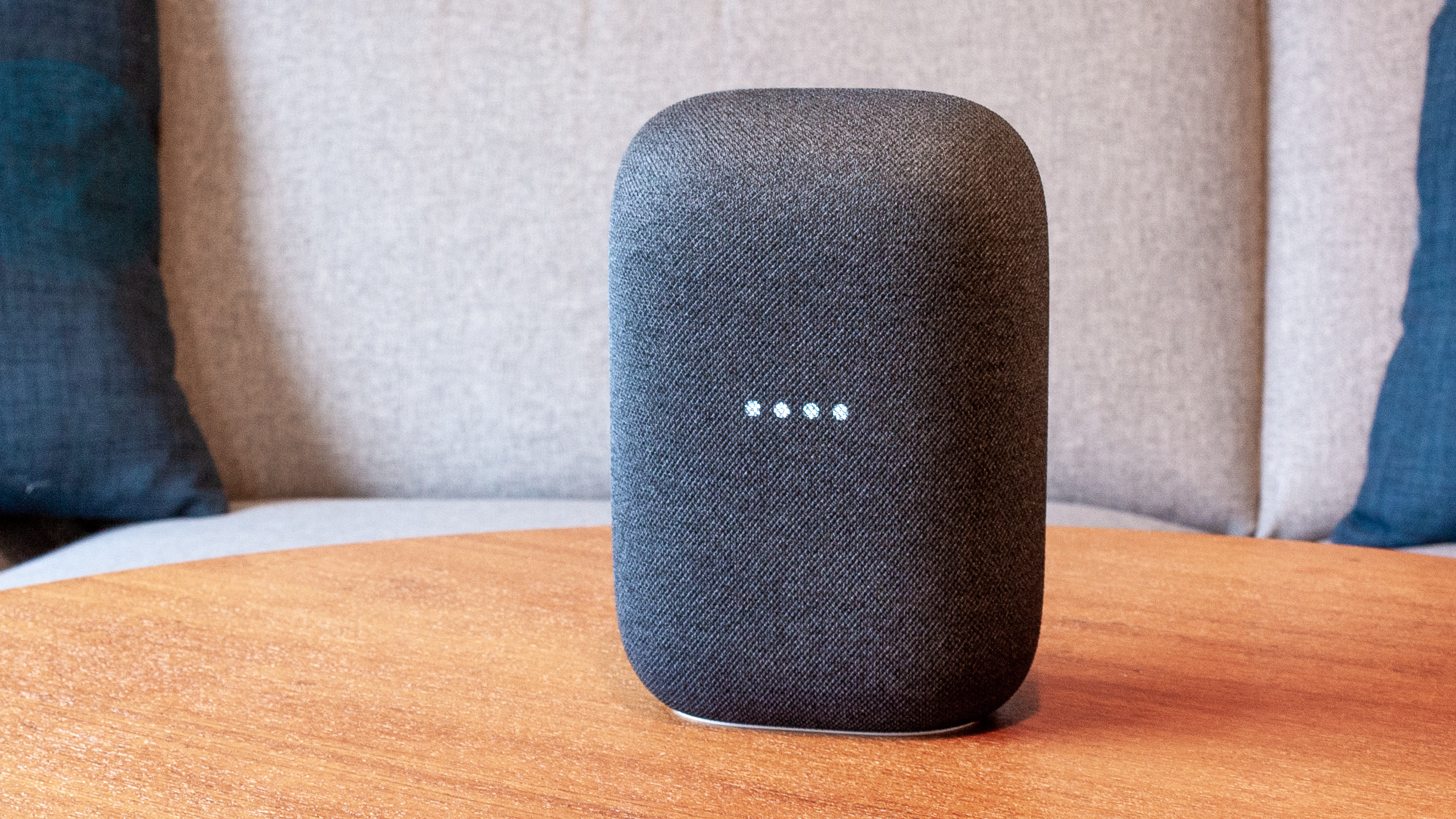
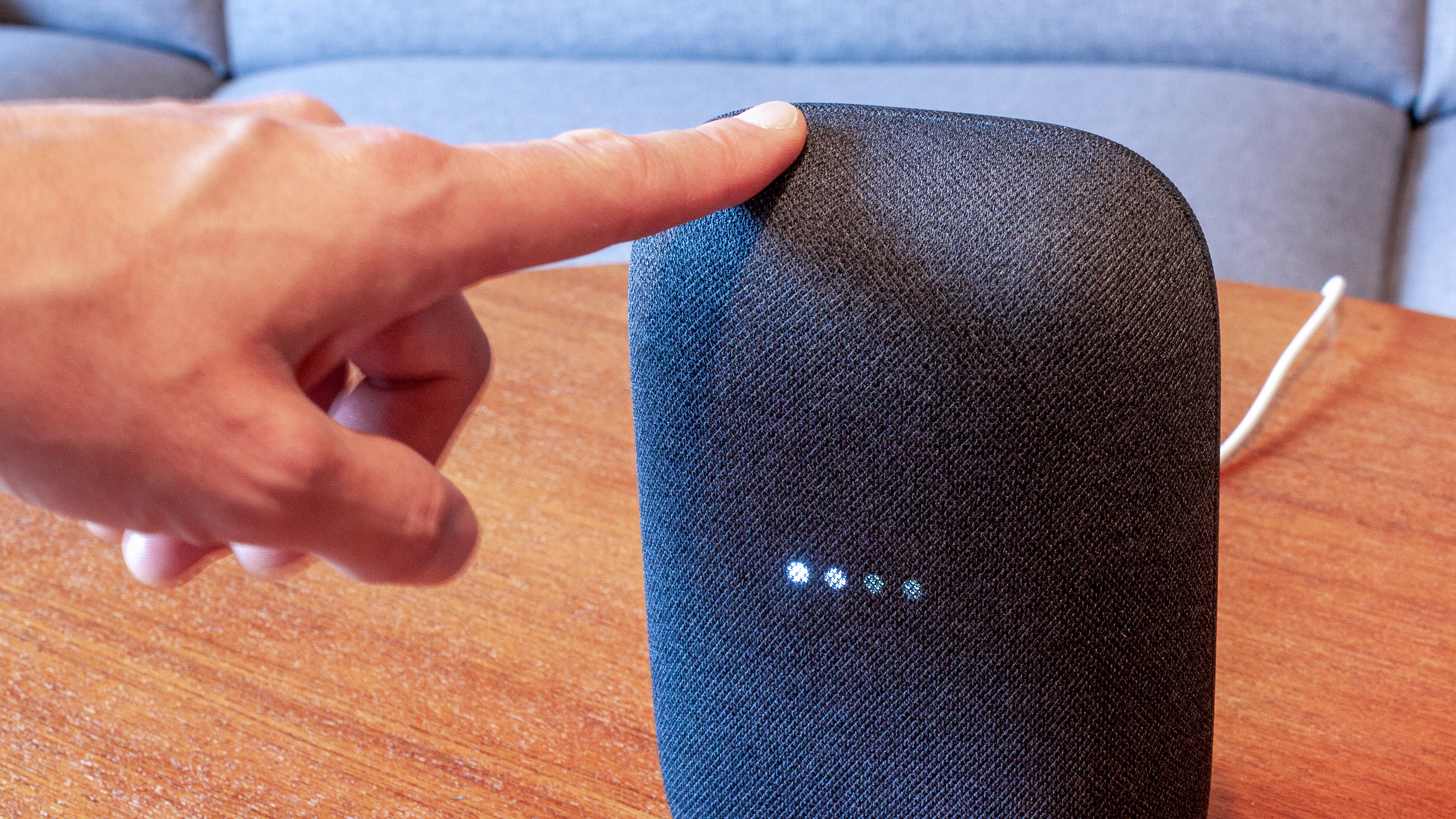
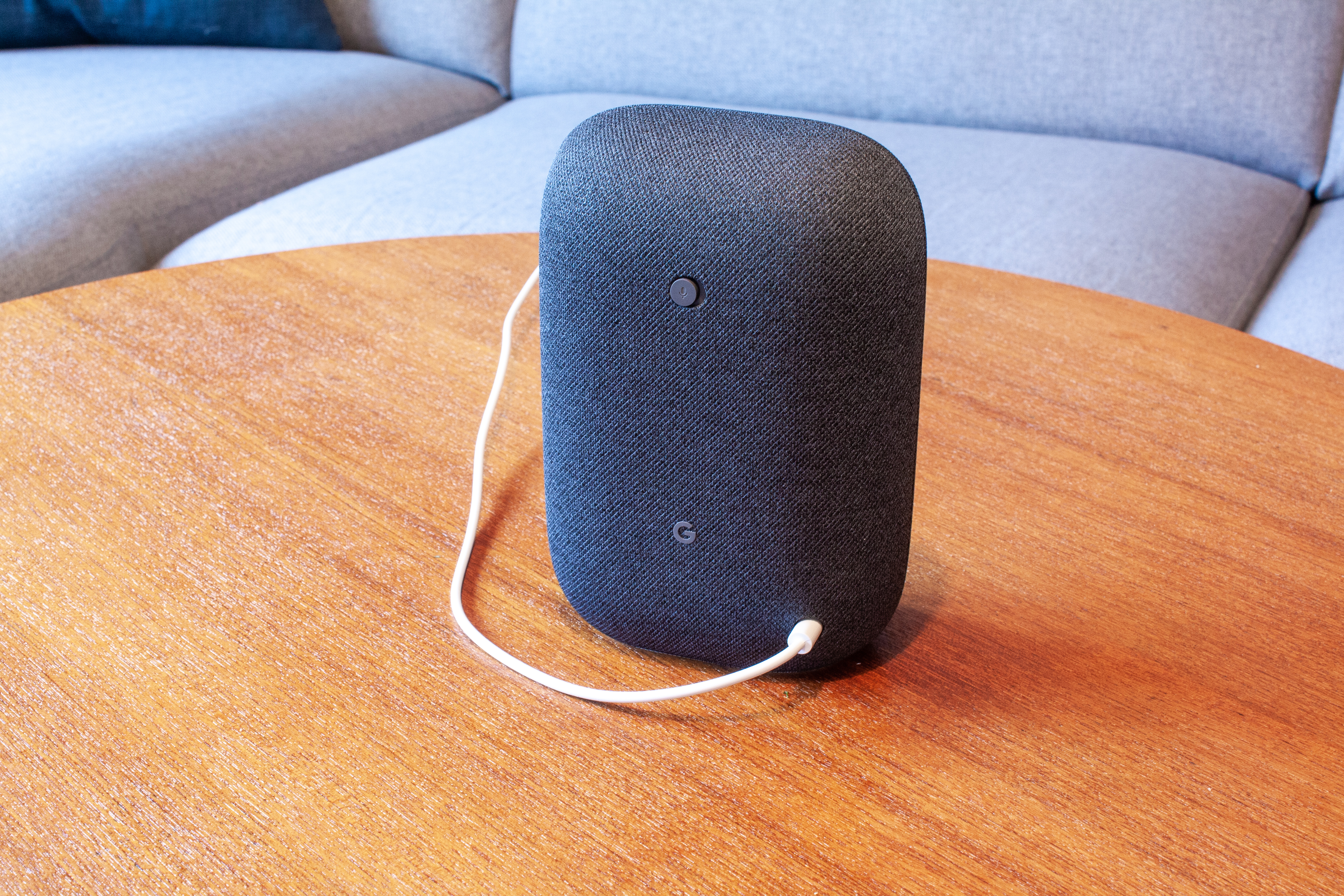
Specifications
Reasons to buy
Reasons to avoid
✅ You want a smart speaker for the kitchen or bedroom: The Nest Audio doesn't offer room-filling sound, but is unobtrusive.
✅ You value simplicity: This smart speaker is particularly easy to use, especially with voice controls.
❌ You're picky about sound quality: It's fine for background music, but this isn't a smart speaker for audiophiles.
❌ You want an interesting design: This little gray rectangle isn't going to set the world on fire.
If you're looking for a smart speaker with Google Assistant built-in, the Google Nest Audio is currently the best Google-manufactured smart speaker you can buy; we liked the Google Home Max speaker, but Google has stopped making it.
We found that the Nest audio picked up our commands with ease, and Google Assistant is quick to respond as well as loud and clear. The subtle and unassuming design should blend in well with any home decor, and in addition to its audio skills it's also a surprisingly intelligent smart home hub. It hooks into some of the largest platforms now available by including Nest, Philips, and Samsung’s SmartThings – although while the device is Matter compatible there's no built-in Zigbee hub as with the latest Amazon Echo.
The smart bit of this smart speaker is very smart, but the speaker itself is a little disappointing: the sound quality didn't live up to our expectations. It sounds just fine with uncomplicated pop music, but other genres reveal a lack of detail in the treble and mids that makes tracks lack sparkle and sound a little muffled.
Read our full Google Nest Audio review
The best budget smart speaker
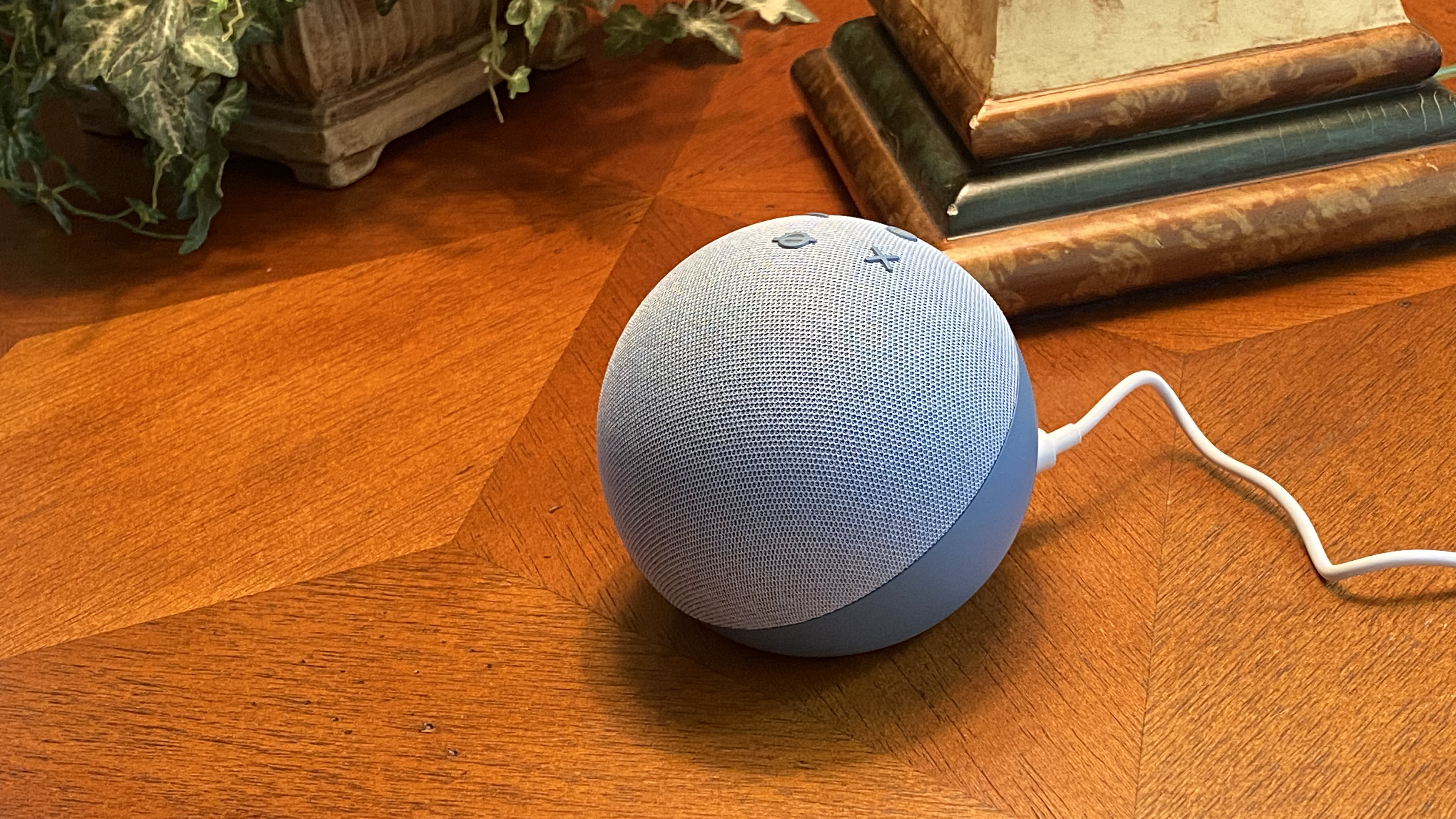
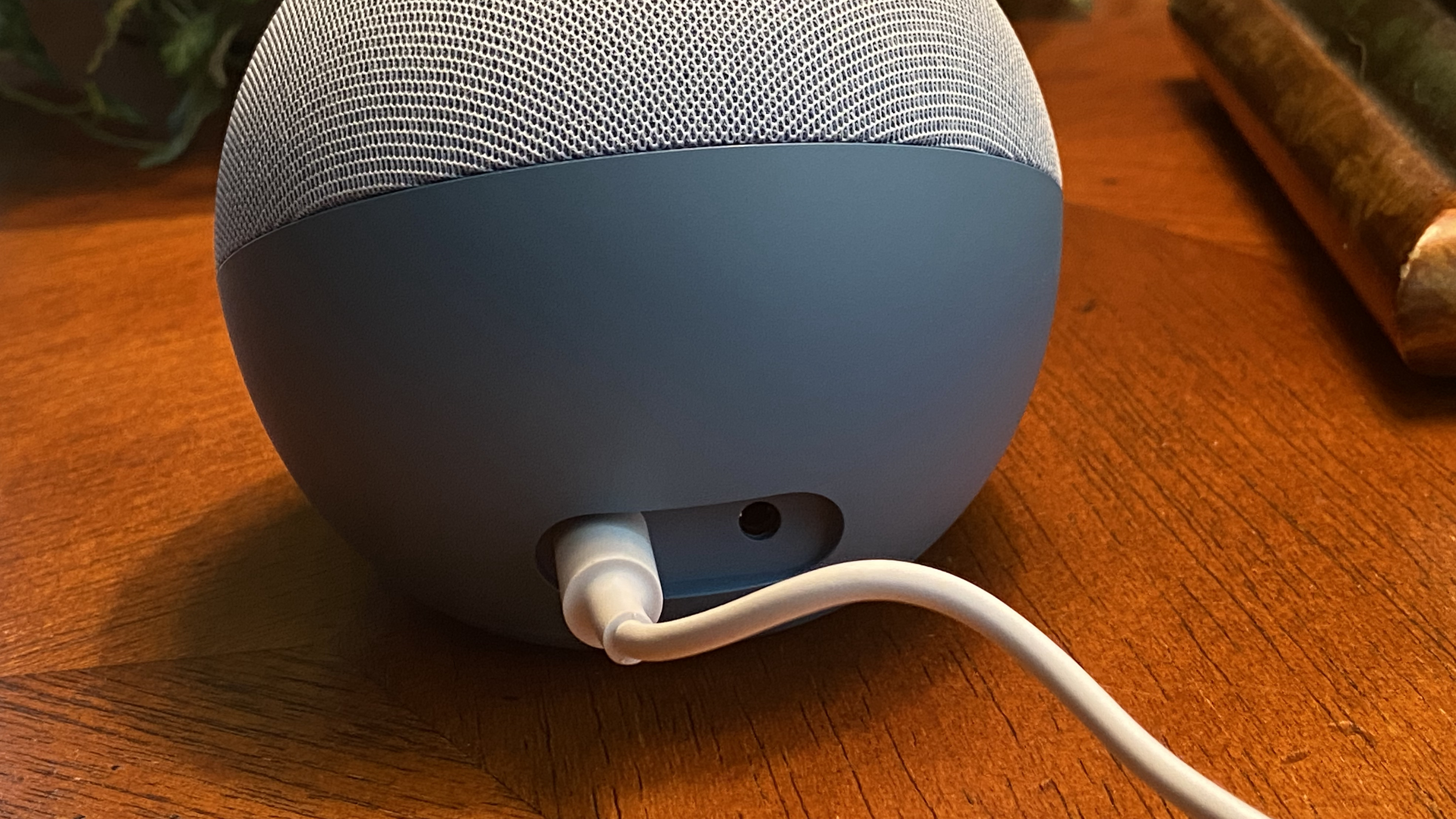
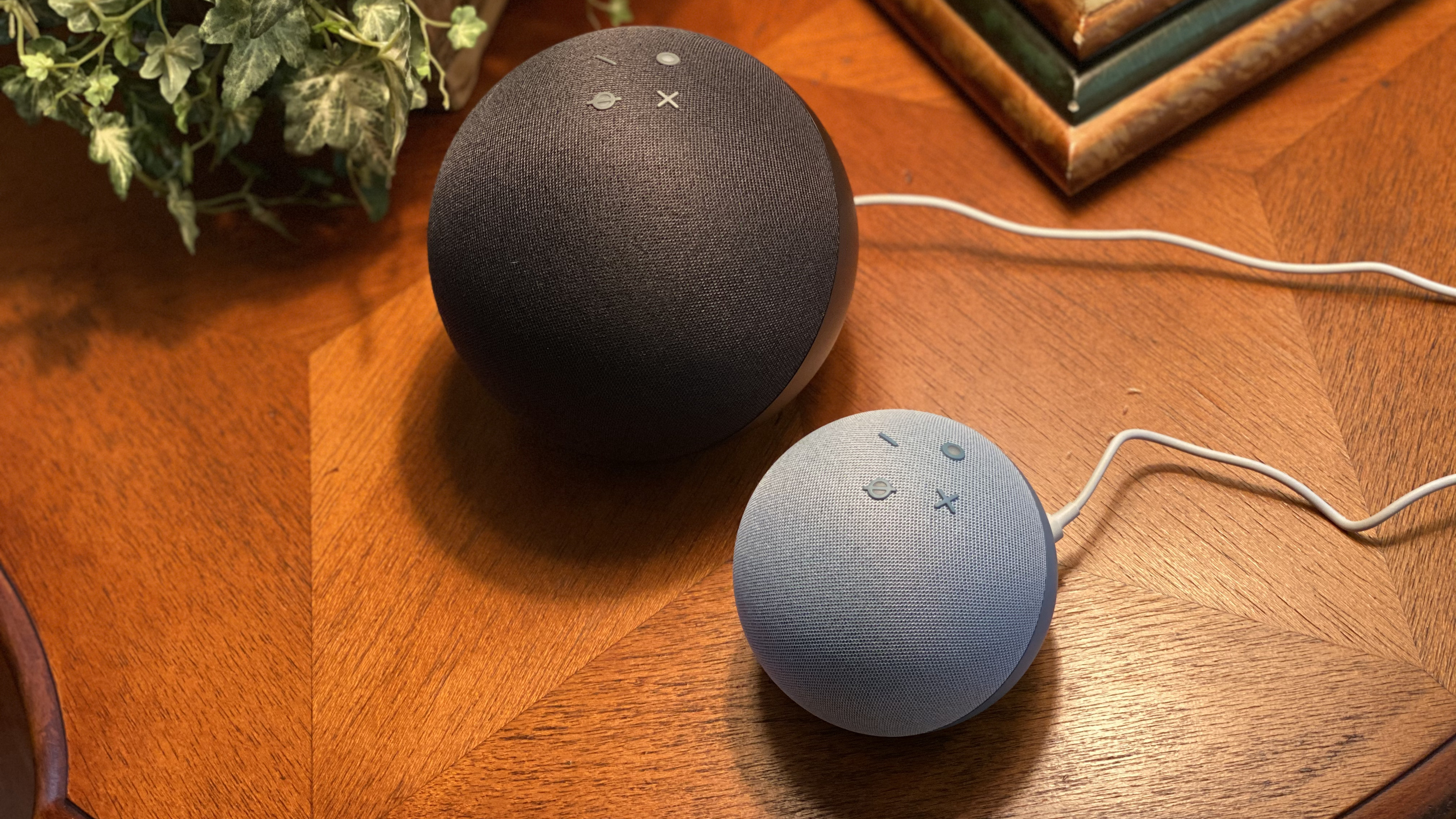
Specifications
Reasons to buy
Reasons to avoid
✅ You want to extend Alexa's reach: The Dot is a good way to extend Alexa's hearing range if you already have an Echo speaker.
✅ It's on sale: You can pick up the Dot extremely cheaply during Amazon Prime Day or Black Friday.
❌ You want a smart speaker that really rocks: The Echo Dot is a reasonable desk speaker, but it's not our top pick for getting the most out of your music.
❌ You can find the Amazon Echo (3rd Gen) even cheaper: Yes, it's an older model, but the third-generation Echo is a more feature-rich speaker than the Dot.
The Amazon Echo Dot has always been the best option for those who aren’t sure about smart home tech and want to take the first step. It provides a place for Alexa to live inside your home and is loud enough to fill a room. And with discounting often taking it below its already low $50 / £50 / AU$80 price, it’s easy to see why it’s long been one of the most popular smart speakers on the market.
The Dot has the same space-age aesthetic as its bigger brother, the Amazon Echo (2020), so it looks stylish and once again is quite a change from the previous Echo Dot design. In our tests we found it extremely easy to set up and use, although its small speaker means the sound lacks the depth and punch of its larger siblings. There's no Zigbee hub here, but the device is Matter compatible. It's a great way to add Alexa to your home but if you're like us you'll probably want to upgrade to something more powerful for regular music listening.
Read our full Amazon Echo Dot (2020) review
The best premium smart speaker
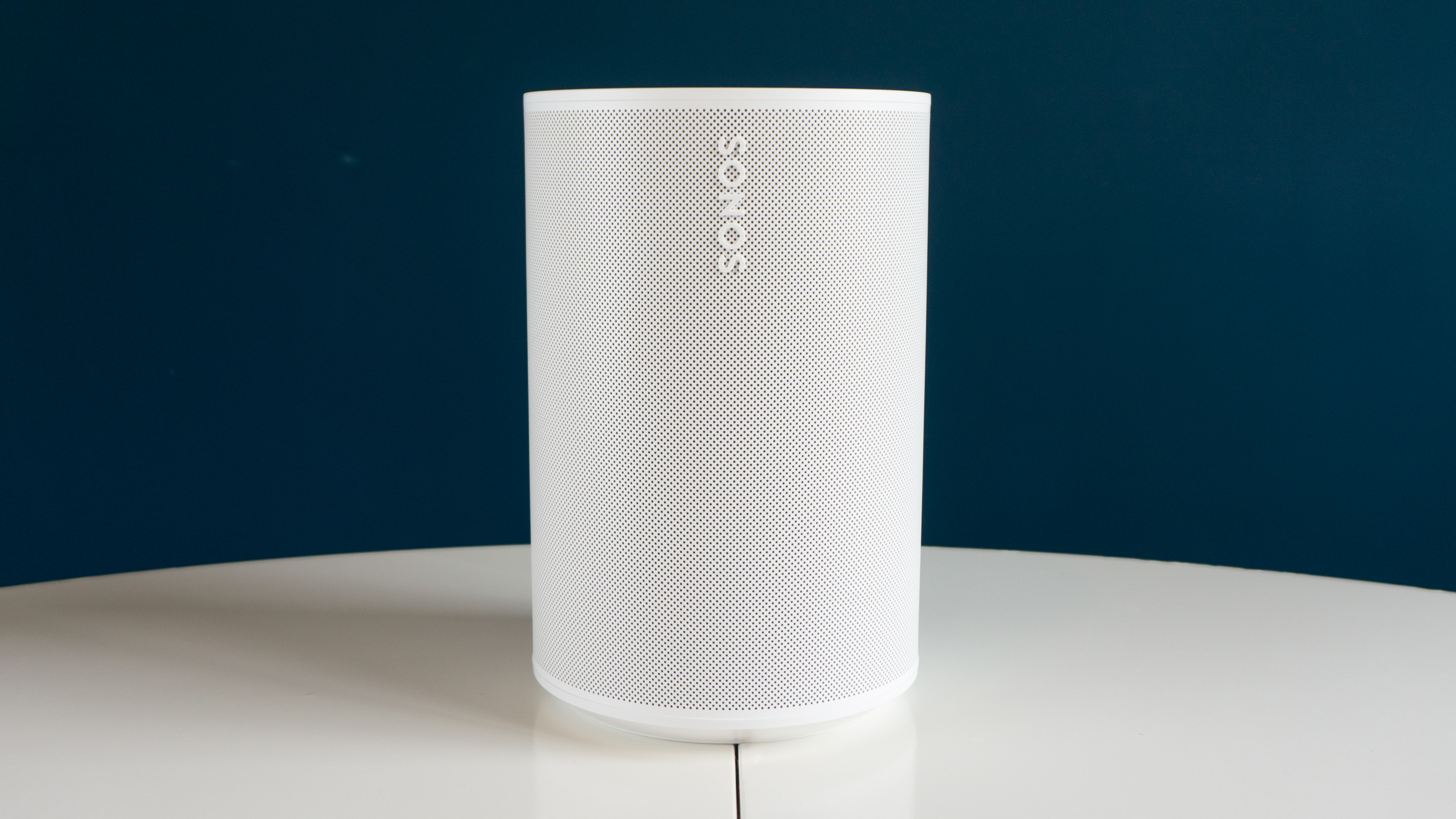
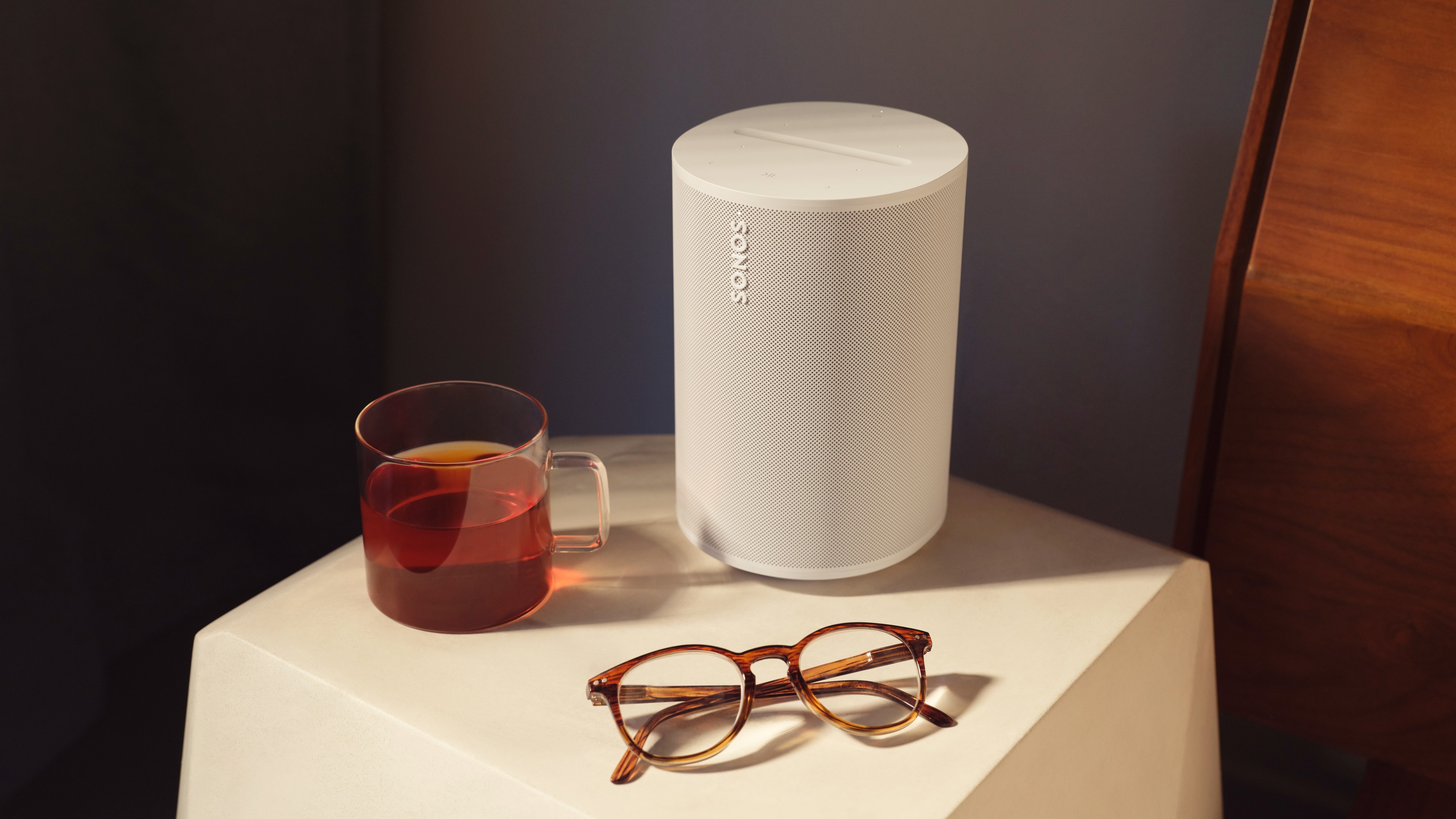
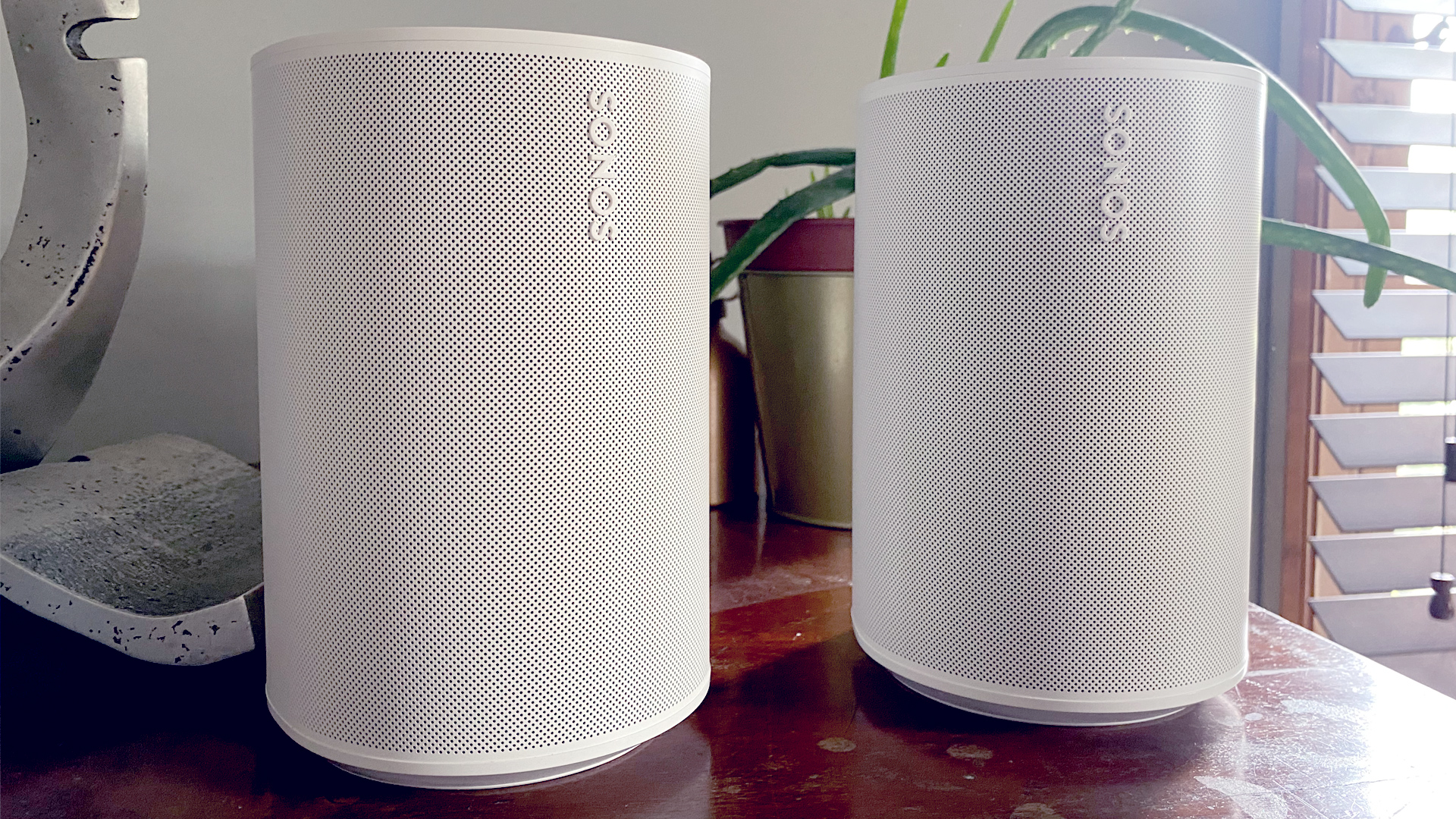
Specifications
Reasons to buy
Reasons to avoid
✅ You want a small speaker with big sound: Despite its compact size, the Sonos Era 100 really packs a punch.
✅ You want connectivity options: Multiple streaming services, Airplay 2, Bluetooth, and even line-in - this speaker does it all.
❌ You expect real stereo sound Despite the angled tweeters, you're only getting a hint of stereo here.
❌ You're not a bass fan The Era 100 isn't overly bassy, but it will stand out to those who are focused on more delicate listening.
The Sonos Era 100 is a replacement for the superb Sonos One, with improvements including a wider soundstage for room-filling sound, plus the option to choose between Wi-Fi, Bluetooth, and 3.5mm line-in connections so you can play music from just about any source. Audio is clear and detailed, and bass has received a boost as well, though in our tests we found it could be a little heavy-handed at times.
The unit itself is compact and unobtrusive, with touch controls on the top for controlling music playback, and switches on the rear for Bluetooth playback and muting the speaker's microphone. Unfortunately Sonos has chosen to drop support for Google Assistant this time around, so the Era 100 only supports Alexa and Sonos's own voice control system.
It's definitely one of the most expensive speakers we've tested, costing more than the Sonos One before it, but if you value sound quality and your budget can take the hit then you won't be disappointed.
Read our full Sonos Era 100 review
Visit our Sonos coupon page for our latest deals and discounts.
The best smart speaker for home cinema
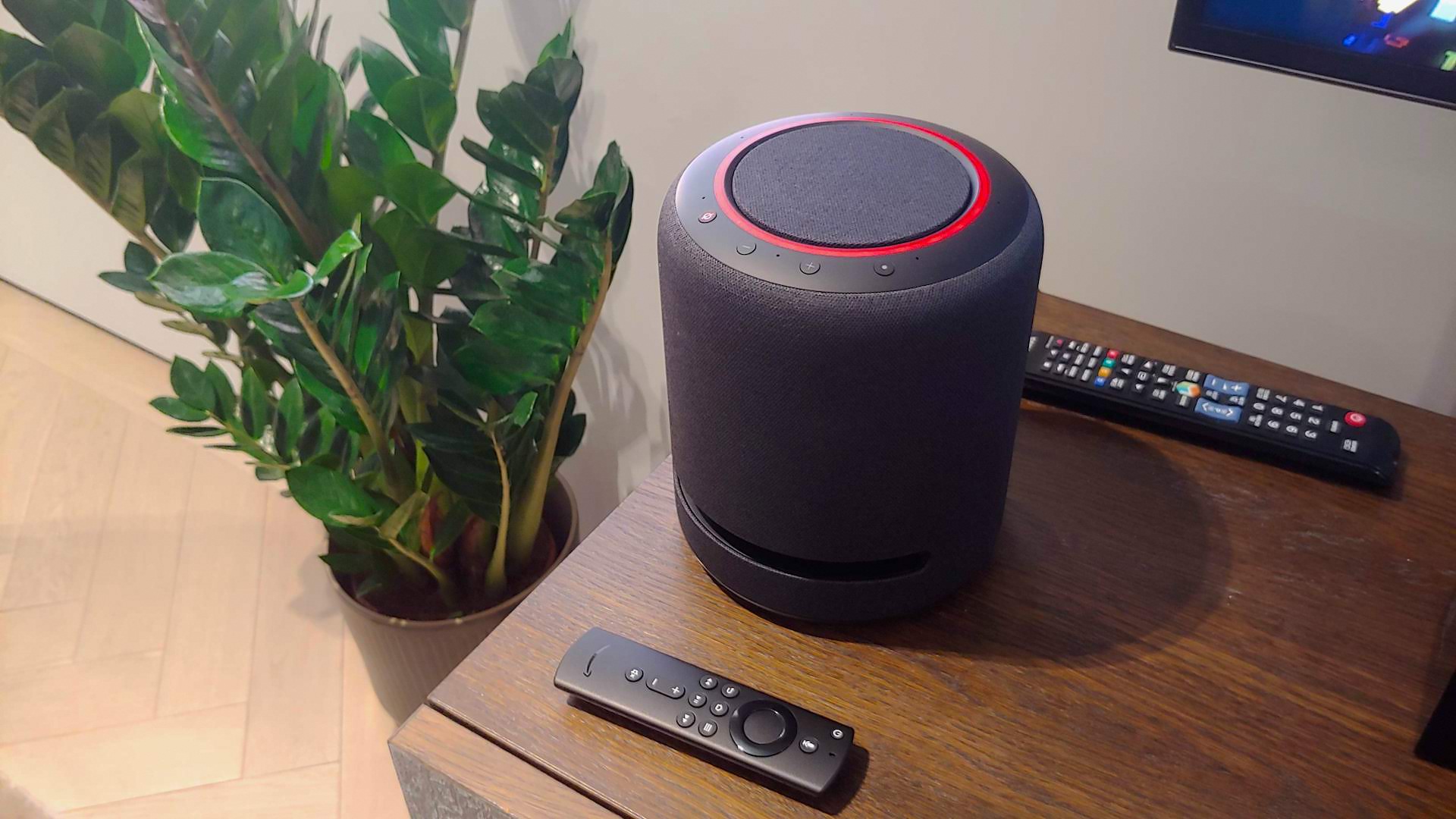
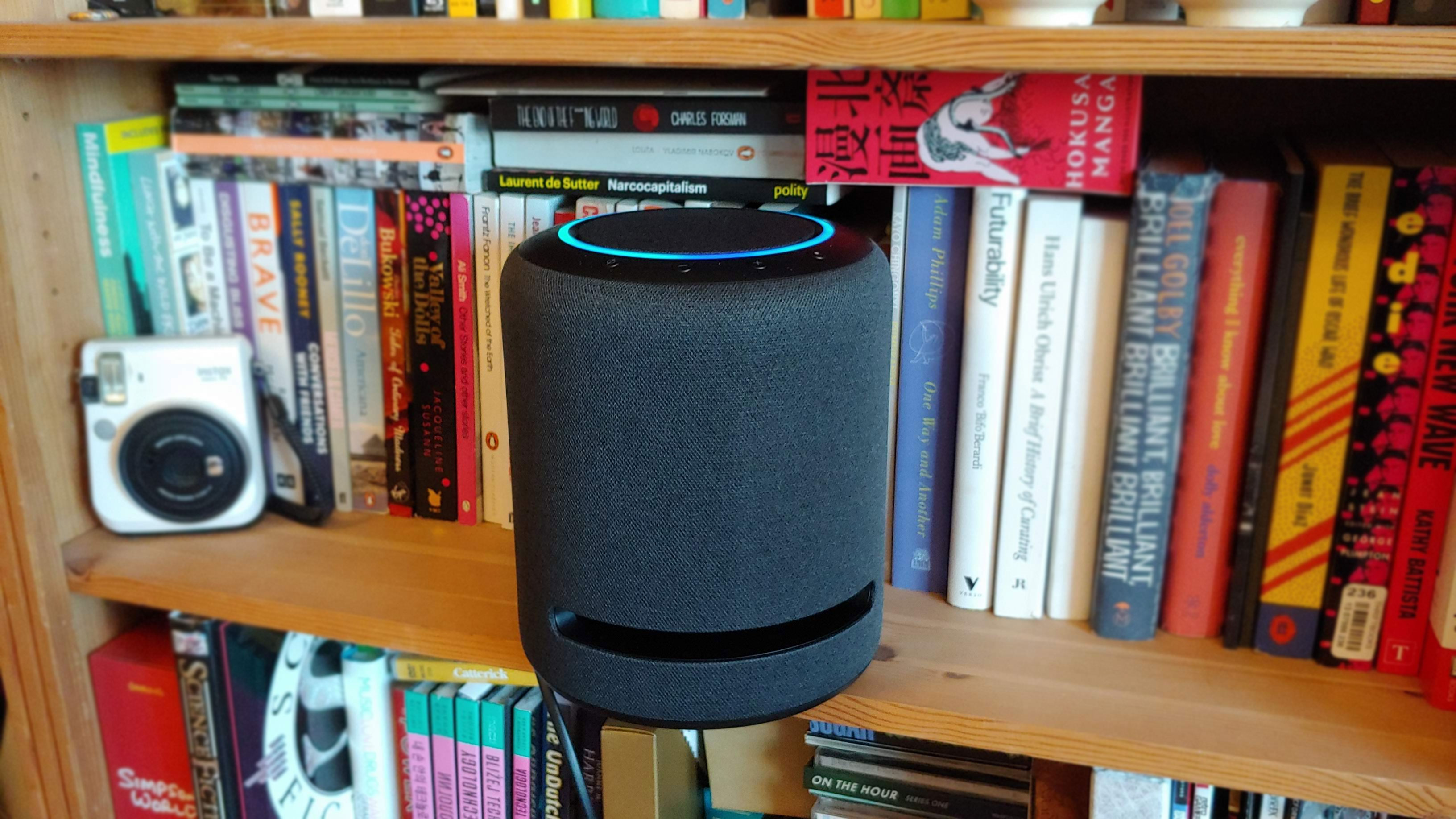
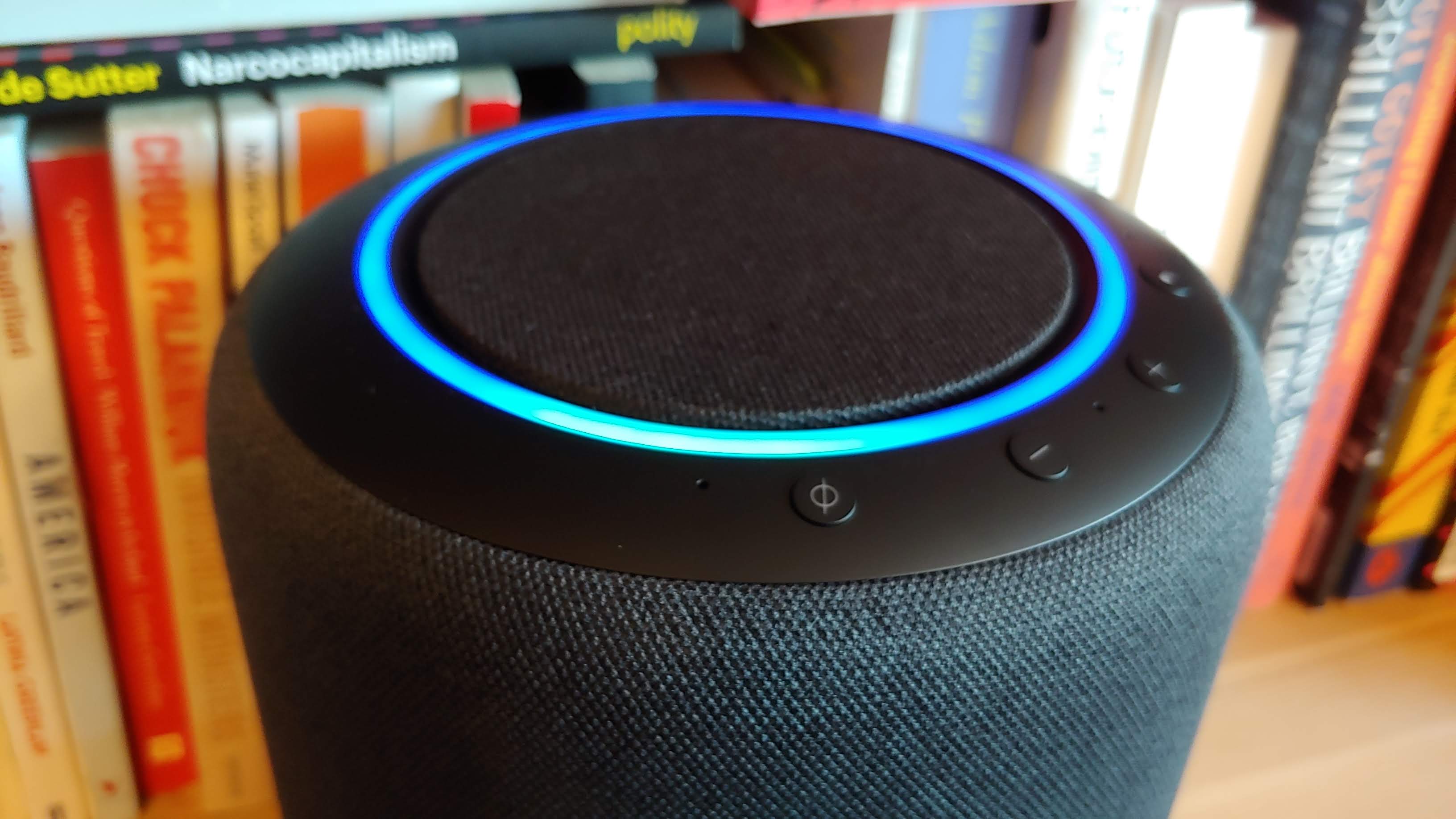
Specifications
Reasons to buy
Reasons to avoid
✅ Sonos and Bose are out of your price range: This smart speaker offers very respectable sound quality for the price.
✅ You have an Amazon TV device: The Amazon Echo Studio will pair with it effortlessly.
❌ You're an audio connoisseur: 3D audio mixing sometimes falls flat.
❌ You're short of space: This is larger than your typical Echo speaker, and its directional sound means you need to leave space around it.
We think Amazon’s first high-end smart speaker for home cinemas is the best-sounding Echo we've tested. With 330W it's one of the most powerful speakers you can get for this price, and if you buy two Amazon Echo Studio speakers you can set them up in the Alexa app to create an immersive home cinema system.
We've tested that configuration too, and while it's not as immersive as a dedicated surround sound system it's still very impressive as well as impressively loud.
It’s a powerful speaker and it doubles as a Zigbee hub too. But to get the best from it you'll need to subscribe to Amazon Music HD and its large size won't suit all. That said, you get a lot of speaker for your money and this is a much more affordable option than similar speakers from rivals such as Sonos.
Read our full Amazon Echo Studio review
The best smart speaker for music
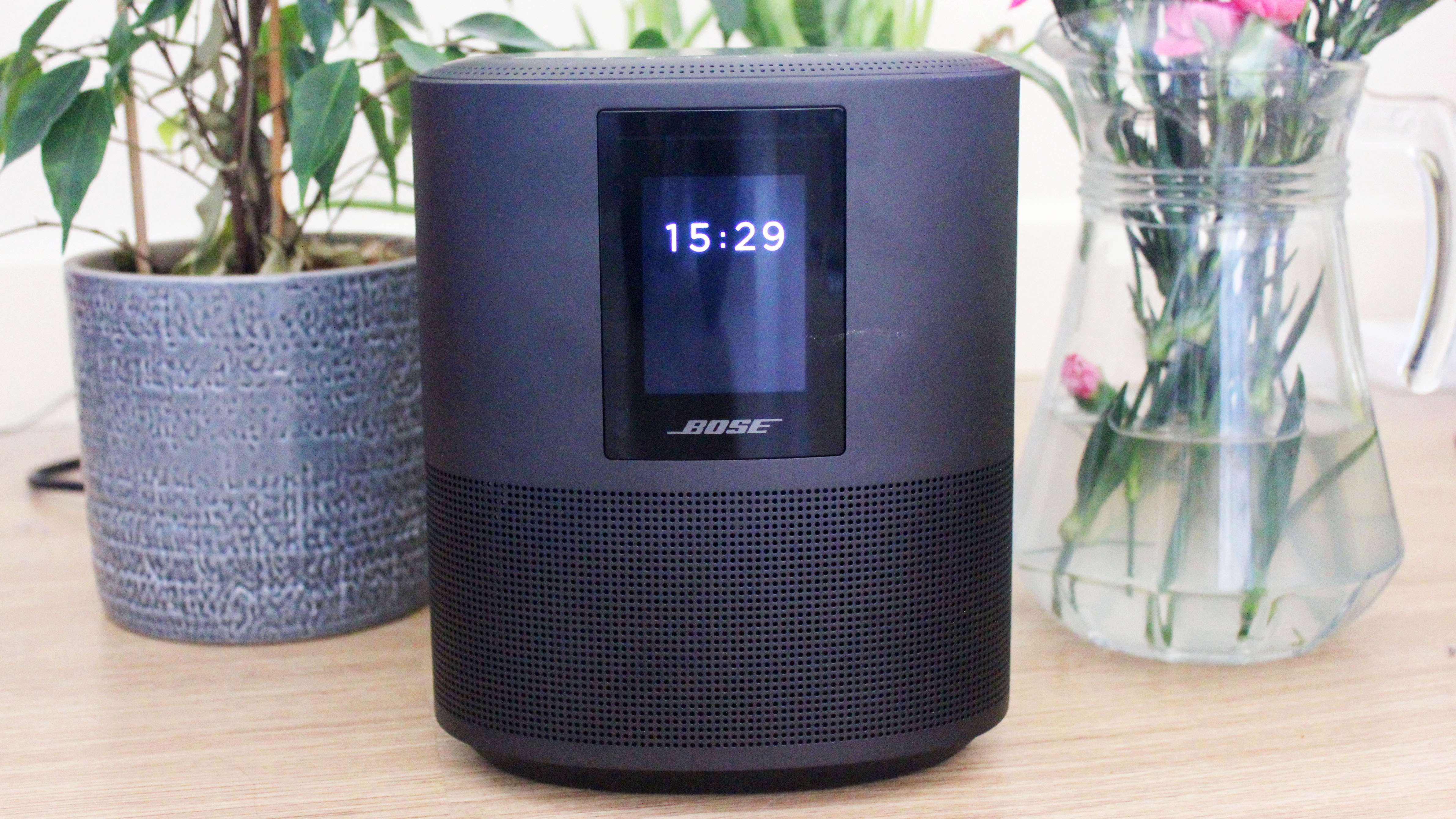

Specifications
Reasons to buy
Reasons to avoid
✅ You want room-filling sound: This speaker really delivers on the audio front with warm, analog-style sound.
✅ You can get it at a discount: Our Bose discount codes can make the Smart Speaker 500 more affordable.
❌ You want hassle-free setup: Connecting the speaker to our Wi-Fi network wasn't entirely straightforward.
❌ You're on a budget: At nearly $400, this is one of the pricier smart speakers we've tested.
If you’re searching for the best-sounding smart speaker, this is it. And with Google Assistant and Amazon Alexa built-in, the sleek anodized aluminum Smart Speaker 500 has the smarts to match its room-filling sound and an elegant design.
We found that the eight microphone array, designed for near and far-field listening, enabled us to talk to Alexa or Google Assistant even when our music was playing loud. And we loved the preset buttons that offer one-touch access to your favorite playlists, radio stations or albums.
But in our tests we found that setting the speaker up on a Wi-Fi network using the Bose Music app is harder than it should be. We also can't ignore the fact that it's one of the most expensive smart speakers on the market. If you're an audiophile, though, we think you'll find it worth every penny. However, if you're looking to save a bit of money, check out our Bose voucher codes.
Read our full Bose Smart Speaker 500 review
The best smart speaker for powerful bass
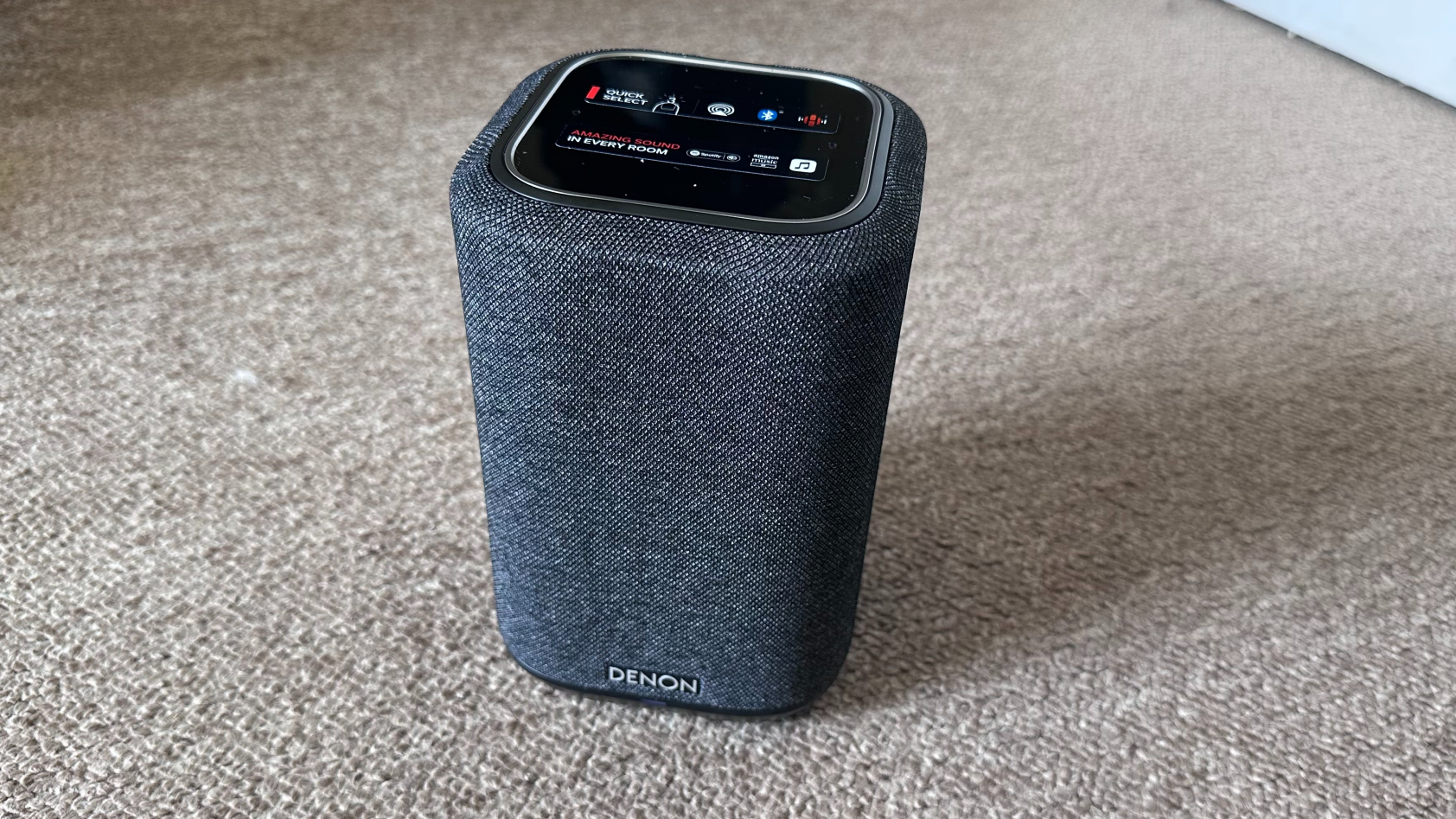
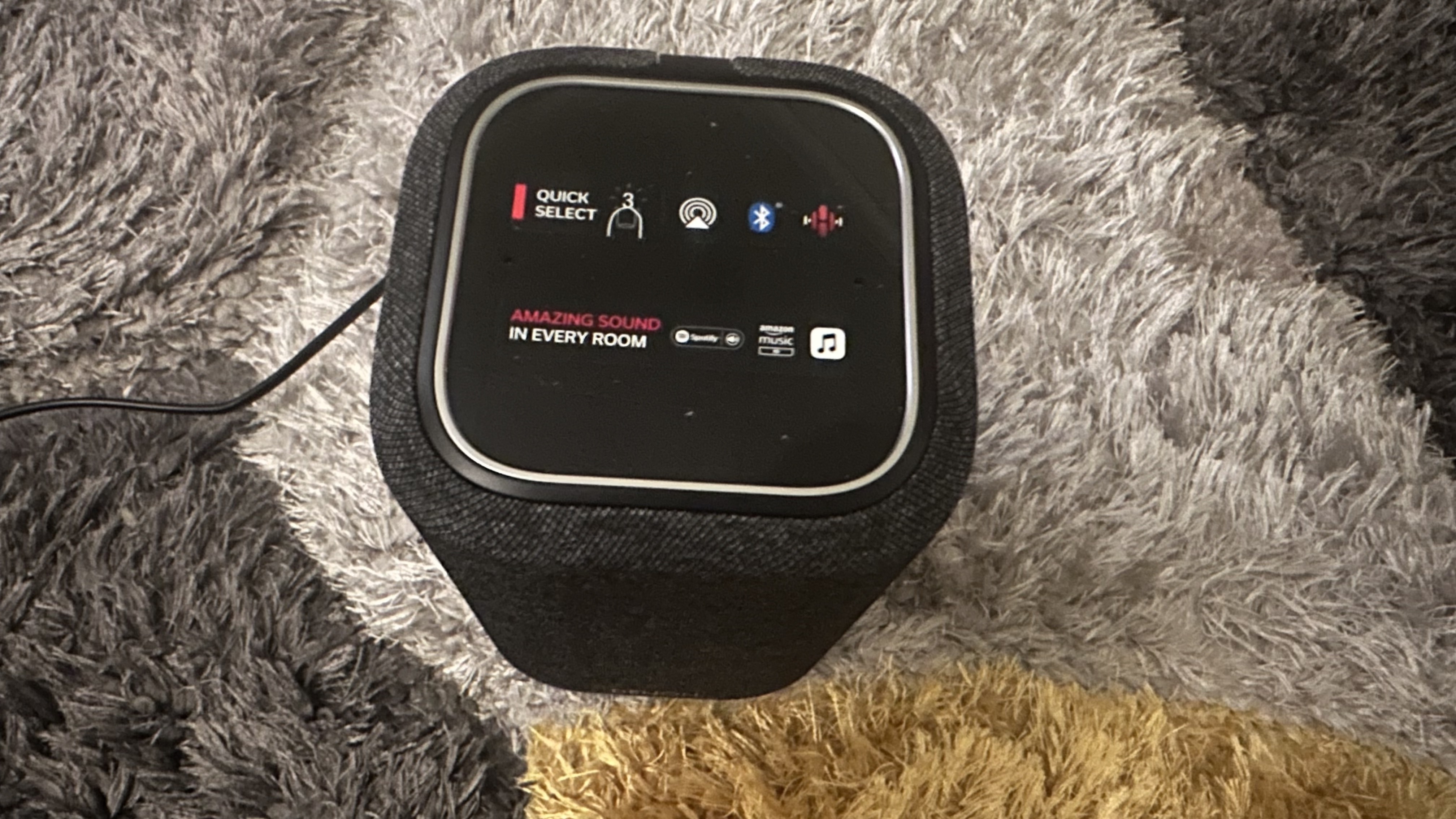
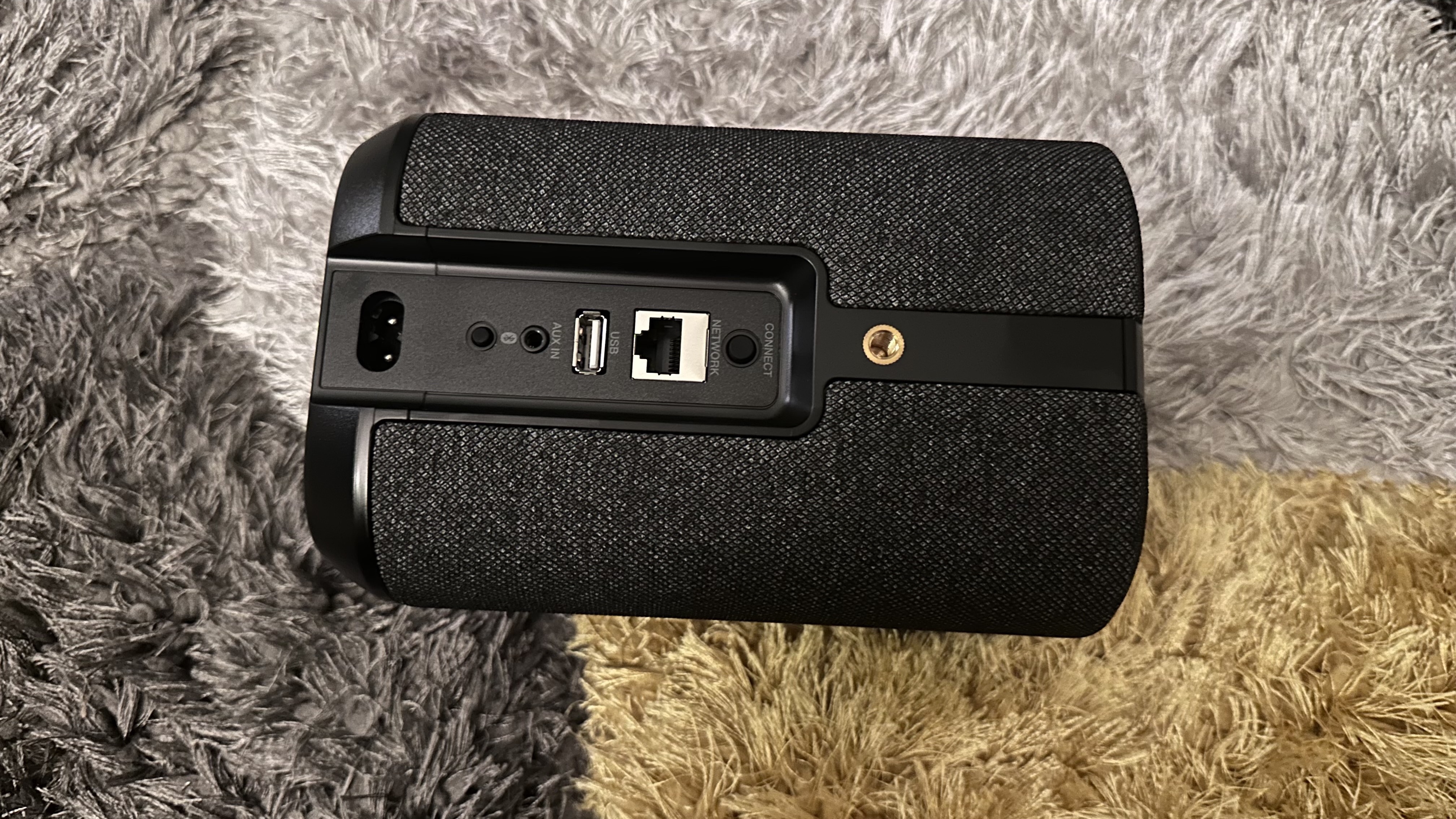
Specifications
Reasons to buy
Reasons to avoid
✅ You want a living room speaker: The Denon Home 150 can fill a room with sound without its looks grabbing attention.
✅ You don't have space for a subwoofer: This speaker delivers serious bass, despite its compact size.
❌ You dislike multi-room setups: The Denon Home 150 designed to encourage you to hook other speakers up to it.
❌ You're on a budget This speaker is pretty expensive, and the price could be hard to justify if you don't use all of its many features.
The Denon Home 150 is a capable smart speaker that might look a bit boring but offers a bunch of smart listening options all packed into a compact design—perfect if you're tight on space. It keeps things varied and useful, making it easy to listen to streaming services right down to the collection on your network drive. Via the HEOS app, you can connect quickly to Spotify, TuneIn Radio, Amazon Music, Deezer, Napster, Soundcloud, Tidal and other services, with the app adjusting according to your location.
Neat touches come from the ability to set up playlists across all sources, as well as to use Google Assistant or Alexa to control things using your voice. The app is a little simplistic looks-wise, but it has all the essentials and its aesthetic makes its features more easily accessible – including EQ settings and other customization tools.
It's not the best-sounding device on this list - take a look at the Bose Smart Speaker 500 for top audio quality - but the Denon Home 150 offers more bass than you'd expect for its size. This means it’ll delight those who don’t have room in their home for a subwoofer - if you’re all about that bass, but you live in a small place. For a tech fan, slightly weaker sound quality in exchange for so much tweaking and app potential means the Denon Home 150 is a great alternative.
Read our full Denon Home 150 review
How to choose the best smart speaker for you
When it comes to choosing the right smart speaker for you, there are a number of factors to consider.
Start by working out which voice assistant you want your smart speaker to offer access to. If you already use a voice assistant on your smartphone or tablet, or have existing smart speakers or smart displays in your home, it makes sense to plump for a smart speaker that has the same assistant baked in. However, if you’ve yet to settle on the voice assistant for you, we've compared Alexa vs Google Assistant to help you decide.
Next, consider where you intend to locate the smart speaker; smaller, more compact smart speakers are best suited to bedrooms and kitchens, for setting timers when cooking, while larger smart speakers work in rooms with bigger footprints such as a living or dining room.
If you intend to use the smart speaker as your main listening device, make sure you consider the number of speakers and the sound output and quality they offer. Those with smaller speakers are best suited to background music, while larger smart speakers will offer a louder, more room-filling sound. Also, look for models that can be paired together to create stereo sound if you’re planning to use a smart speaker as part of your home cinema set-up.
If you have an iPhone or an iPad, it might also be worth checking out the best AirPlay speakers, which allow you to stream music from your devices to your speaker. Many of these also come with your favorite smart assistant on board.
How we tested these smart speakers
To discover the best smart speakers on the market, we assess the the sound quality of the speaker and how effective the built-in voice assistant is at controlling playback for you; from selecting specific playlists, albums and tracks to adjusting the volume, skipping tracks and even the number of streaming service its compatible with.
We also evaluate each model on its ability to pick up your voice when issuing commands to the voice assistant, privacy features that help ensure the smart speaker isn’t constantly watching and listening, and the smart home devices it's compatible with, as well as how compact and durable the design is.
Frequently asked questions about smart speakers
What is a smart speaker used for?
As we’ve already mentioned, a smart speaker can do more than just offer a way to listen to your favorite music streaming service, or the albums and tracks stored on your smartphone. The built-in voice assistant can control the playback of your music for you; adjusting the volume, skipping tracks and even selecting a specific song, album or playlist for you completely hands-free.
It can also provide a weather report, offer an audible summary of the day's headlines, and answer your burning questions; whether that’s ‘what is the tallest mountain in the world’ or simply ‘Who is the Queen of England’.
Smart speakers can even be used for light entertainment in the form of jokes and games and also allow you to stay in touch with friends and family by making audio calls through the device.
If that wasn’t enough, a smart speaker can also control compatible smart home devices; for example, it can dim or brighten any smart lights you have in your home, turn the temperature up or down if you have a smart thermostat and let you converse with anyone at your doorstep by connecting to your video doorbell.
Which voice assistant is best?
On the whole that's subjective. Some people have always liked Apple products the best and stay loyal to Siri. Others really like Alexa after snapping up an Echo as soon as the smart speaker was first launched.
The general consensus seems to be that Google Assistant is, largely, the most accurate voice assistant. If you've got a lot of Apple products, of course, Siri is the best, and for overall compatibility, you're best opting for Alexa. But they're not hard and fast rules.
Is Alexa better than Google?
For starters, the choice might depend on which speaker you like the look of the most. Sure Amazon's Echo range is very similar to the Google Home, but the Show, Spot, and Dot look quite different – check out our guide to the best Alexa speakers for more information.
When it comes to the smart assistants within the speakers, they're both extremely capable. Amazon's Alexa has many, many Skills, which set it apart from the rest. But Google has been a leader in the AI game for a long time now, well before the smart speaker market emerged. It's a lot harder to change Alexa's voice, too.
Get daily insight, inspiration and deals in your inbox
Sign up for breaking news, reviews, opinion, top tech deals, and more.

Josephine Watson (@JosieWatson) is TechRadar's Managing Editor - Lifestyle. Josephine is an award-winning journalist (PPA 30 under 30 2024), having previously written on a variety of topics, from pop culture to gaming and even the energy industry, joining TechRadar to support general site management. She is a smart home nerd, champion of TechRadar's sustainability efforts as well and an advocate for internet safety and education. She has used her position to fight for progressive approaches towards diversity and inclusion, mental health, and neurodiversity in corporate settings. Generally, you'll find her fiddling with her smart home setup, watching Disney movies, playing on her Switch, or rewatching the extended edition of Lord of the Rings... again.
- Becky ScarrottAudio Editor
- Michelle Rae UyContributor